Vietnam : Libérer les prisonniers politiques
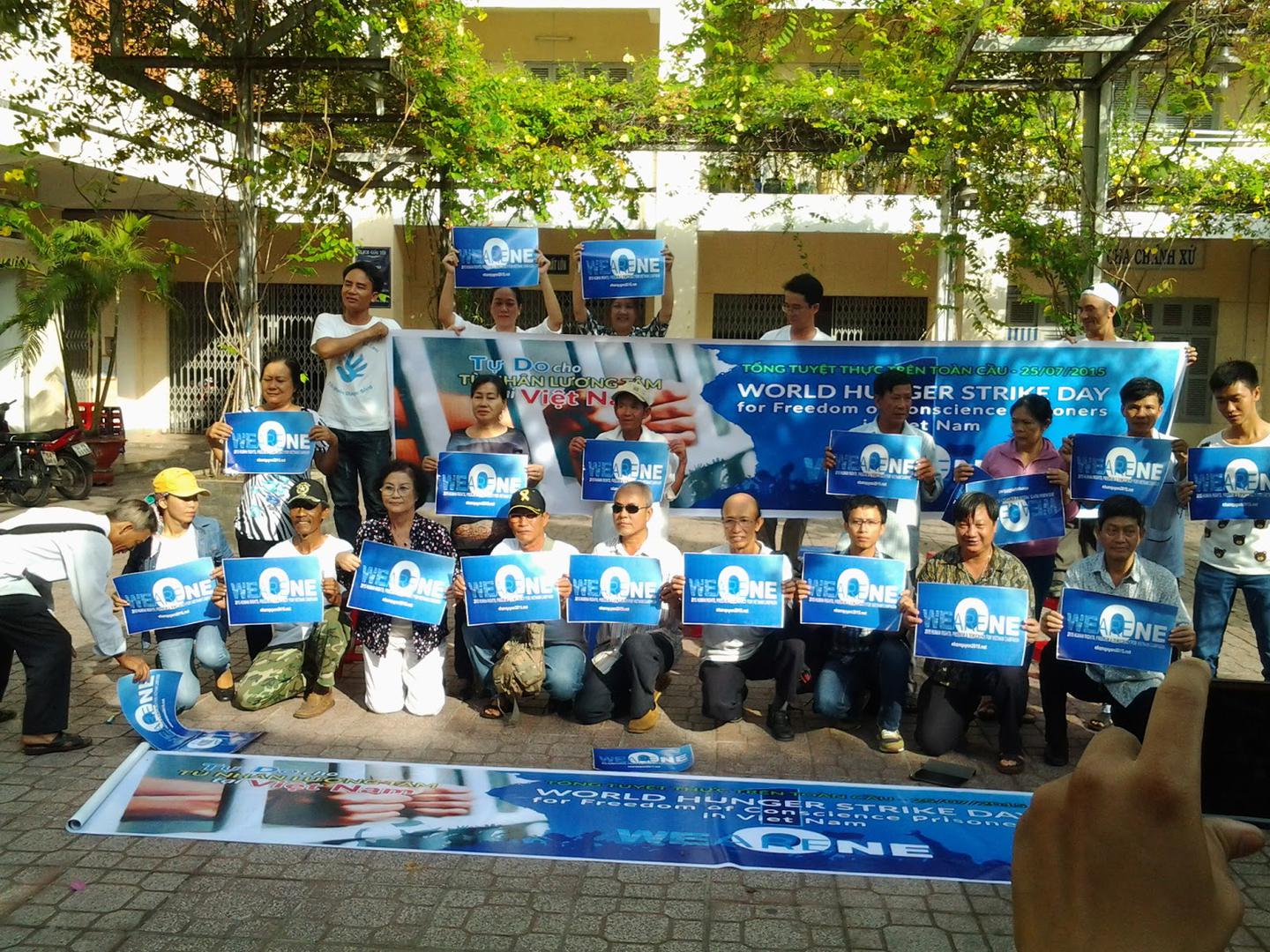
Au Vietnam, plus de 160 prisonniers politiques sont actuellement incarcérés simplement pour avoir exercé leurs droits fondamentaux. Des blogueurs et des militants des droits humains sont régulièrement harcelés, intimidés, surveillés et interrogés par la police. Les activistes sont souvent soumis à de longues périodes de détention provisoire, sans accès à des avocats ni à leur famille dans cet État policier à parti unique, qui ne tolère aucune dissidence.
Les bailleurs de fonds internationaux et les partenaires commerciaux du Vietnam devraient exhorter le gouvernement à mettre fin à la persécution systématique de détracteurs pacifiques. Soutenez l’appel à la libération immédiate de toutes les personnes détenues simplement pour avoir exercé pacifiquement leurs droits.
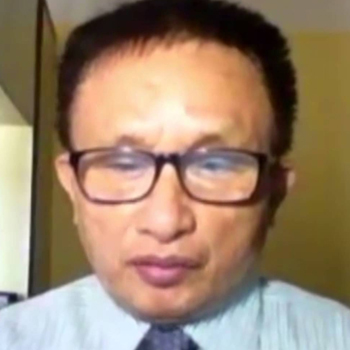
Tran Anh Kim

Tran Anh Kim
Sentenced: 13 years
Tran Anh Kim, born 1949, is a former lieutenant colonel and former deputy political commissar of the Military Committee of Thai Binh town , who is serving 13 years for pro-democracy activities.
In 2006, Tran Anh Kim became known as a dissident writer and as a member of Bloc 8406, a pro-democracy movement founded on April 8, 2006. Bloc 8406 is known for publishing on that day the “Manifesto on Freedom and Democracy for Vietnam 2006” (Tuyên Ngôn Tự Do Dân Chủ Cho Việt Nam 2006), which called for democratic reforms in Vietnam. It was originally signed by 118 dissidents and later by thousands of others. He also served on the editorial board of To Quoc, a pro-democracy journal founded and run by domestic and overseas activists. In 2009, he received a Hellman Hammett grant from Human Rights Watch as a writer defending free expression.
Tran Anh Kim was arrested by Thai Binh provincial police in July 2009 for connections to the banned Democratic Party of Vietnam. Police charged him with “carrying out activities that aim to overthrow the people’s administration” under article 79 of the penal code. He was convicted in December 2009 and sentenced to 5 years and 6 months in prison.
Tran Anh Kim was released in January 2015 after completing his prison term. Upon being released, he told the BBC’s Vietnamese service that he would continue to fight for democracy and freedom. The police placed him under intrusive surveillance. A group of fellow activists went to visit him in Thai Binh province shortly after his release. Upon leaving his house, the group was attacked by men in civilian clothes.
In September 2015, Tran Anh Kim was arrested for allegedly founding a group called “National Forces Raise the Flag of Democracy” (Luc luong Quoc dan Dung co Dan chu; see case of Le Thanh Tung). Police charged him with “activities that aim to overthrow the people’s administration” under article 79 of the penal code. According to state media, his aim was “to call for the abolition of the Communist Party of Vietnam and the State of the Socialist Republic of Vietnam and the formation of a multi-party system.” In December 2016, the People’s Court of Thai Binh convicted him and sentenced him to 13 years in prison. The long sentence may be because he continued his fight for democracy after serving his first prison sentence.
In August 2017, Tran Anh Kim was transferred from Ba Sao prison in Ha Nam province to prison No. 5 in Thanh Hoa province.
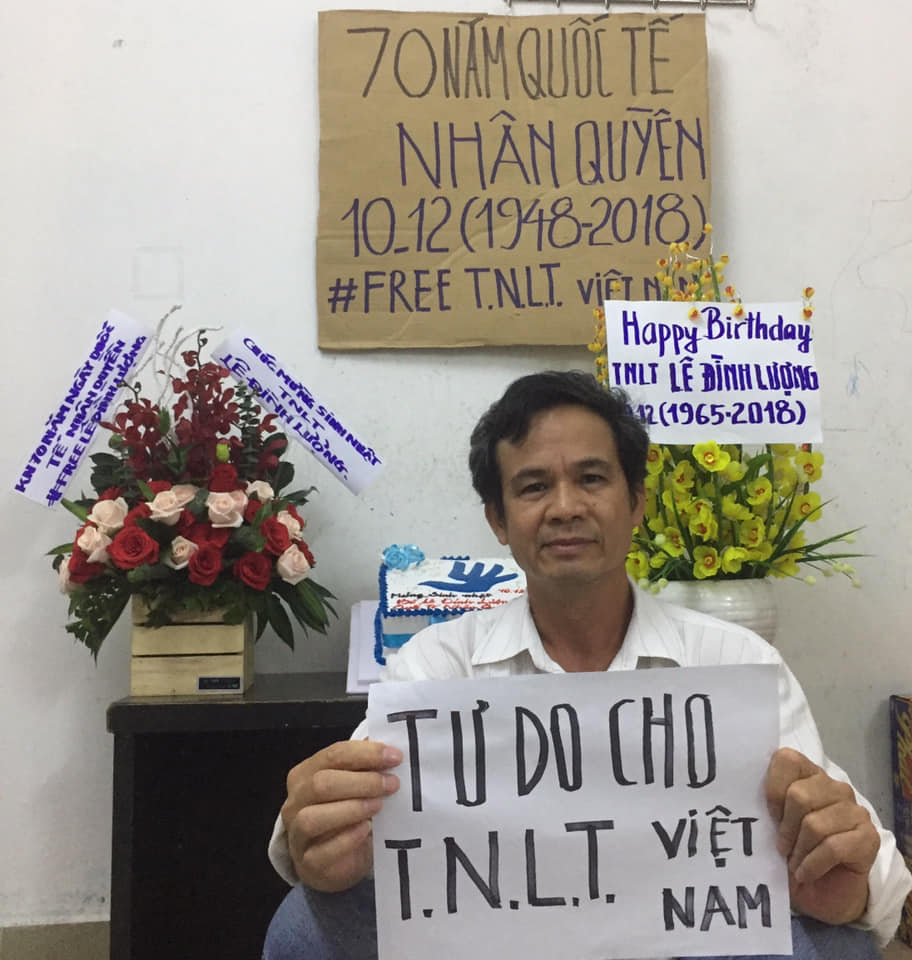
Tran Van Bang

Tran Van Bang
Sentenced: 8 years
Tran Van Bang (born 1961) is serving an eight-year prison sentence for criticizing the government.
Tran Van Bang (also known as Tran Bang), served in the army in the early 1980s, and became an irrigation engineer after he retired from the army in the mid-1980s. In the last decade, he has been participating in anti-China protests. In November 2015, during a protest against a visit to Vietnam by Chinese President Xi Jinping, security agents assaulted and injured Tran Van Bang. He also participated in pro-environment and human rights protests and openly opposed Vietnam’s repressive 2018 cybersecurity law.
Tran Van Bang publicly voiced support for numerous political prisoners and detainees, including Nguyen Thuy Hanh, Pham Doan Trang, Can Thi Theu, Trinh Ba Tu, Trinh Ba Phuong, Le Dinh Luong, Nguyen Tuong Thuy, Pham Chi Dung, Le Huu Minh Tuan, Nguyen Van Hoa, Pham Chi Thanh, and Nguyen Nang Tinh.
He went on a one-day hunger strike in December 2020 to support the prominent blogger Tran Huynh Duy Thuc, who is serving a 16-year prison sentence for campaigning for democracy. He helped raise money to help fellow activists in need, such as Dinh Van Hai and Vu Tien Chi when security agents assaulted the two in June 2018 for visiting the former political prisoner Do Thi Minh Hanh in Lam Dong.
In recent years, security agents frequently placed Tran Van Bang under house arrest so that he could not participate in human rights-related or politically sensitive events.
Several months before Tran Van Bang’s arrest, his health deteriorated so he stopped all activities to concentrate on improving his health. However, the police still summoned him for regular interrogations. Sensing that he would be arrested, he gave an interview to Radio Free Asia in mid-February 2022 and said that the police questioned him about “issues related to propaganda against the Socialist Republic of Vietnam State.” But he said that “they snatch anyone they like to snatch in order to claim achievement. The accusation is just an excuse [for arrest].”
Ho Chi Minh City police arrested Tran Van Bang on March 1, 2022, and charged him for criticizing the government under article 117 of the penal code. On May 12, 2023, a court in Ho Chi Minh City sentenced Tran Van Bang to eight years in prison and three years of probation after his release.
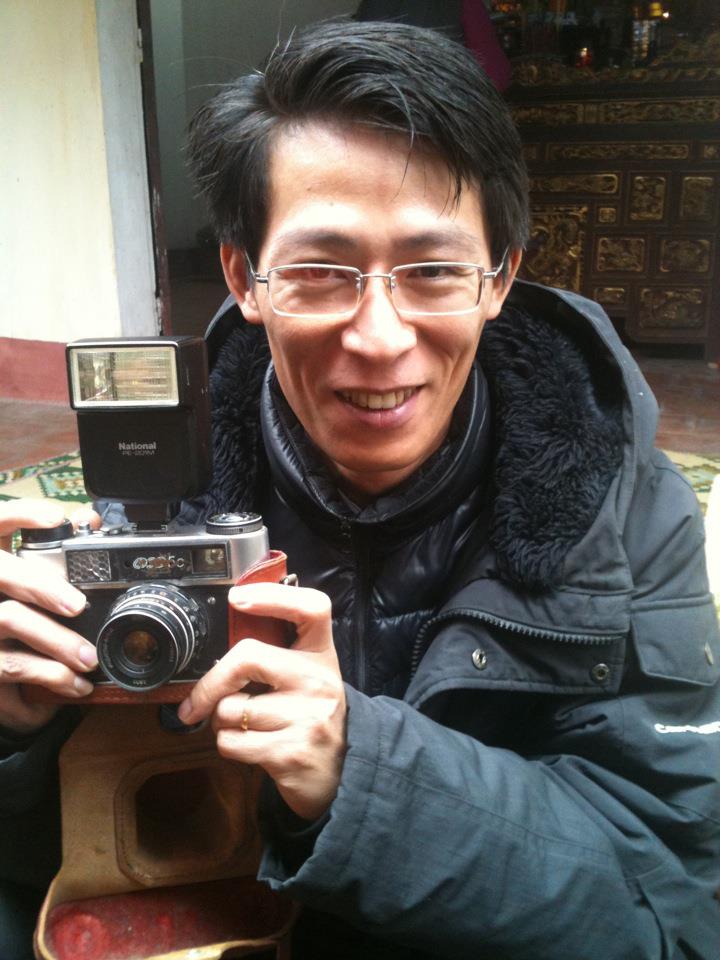
Nguyen Lan Thang

Nguyen Lan Thang
Sentenced: 6 years
Nguyen Lan Thang (born 1975) is serving a six-year prison sentence for criticizing the government.
Nguyen Lan Thang, a graduate of the University of Architecture in Hanoi, began his activism in the early 2000s by participating in anti-China protests. He was a founding member of the now-dormant No-U FC (No U-line Football Club), a soccer team whose members made it their cause to speak out against China’s territorial claims on maritime areas claimed by Vietnam. He also participated in a No-U humanitarian group to provide assistance to impoverished people in remote areas and victims of natural disasters.
Nguyen Lan Thang responded to severe crackdowns on anti-China protests in Hanoi and Ho Chi Minh City by expanding what he called his “scope of activism to other fields, such as supporting land rights petitioners, fighting against forced land confiscation, defending freedom of religion, defending human rights, and promoting [people’s understanding of] law.”
He traveled to sites of forced land confiscation to film the authorities’ use of excessive force. He also participated in many pro-environment protests. He went to trials of fellow activists and visited their families to show solidarity. He voiced support for other political prisoners including Tran Duc Thach, Pham Doan Trang, Can Thi Theu, Le Van Dung, and many others.
Nguyen Lan Thang is also a blogger for the Radio Free Asia Vietnamese Service. Between April 2013 and July 2022, a day before his arrest, he wrote more than 130 blog entries reflecting on various socio-political issues in Vietnam. He publicly advocated peaceful activism, noting that he hoped to fight for “the young generations of tomorrow’s Vietnam” who are “knowledgeable, considerate, unfanatic, and nonviolent.”
He once wrote that he “genuinely cares about actions that help expose and demythologize things for common people, so they dare to stand up and demand their rights and demand the state to carry out its obligations. If we can get that done, the path to freedom and democracy will not be far away.”
For years, the authorities harassed, intimidated, and persecuted Nguyen Lan Thang on numerous occasions. They arbitrarily detained him, interrogated him, placed him under house arrest, and banned him from travelling. In several instances, plainclothes police agents assaulted him. In April 2014, police at Noi Bai airport in Hanoi prohibited him from leaving Vietnam to travel to the United States to attend an international media freedom event. He published an open letter expressing his regret about not being able to attend the event, and lamented the lack of respect for basic human rights in Vietnam.
Police arrested Nguyen Lan Thang, 48, in Hanoi on July 5, 2022, and charged him with “making, storing, distributing or propagandizing information, materials, documents to oppose the state of the Socialist Republic of Vietnam” under article 117 (1) of the penal code. On April 12, 2023, a court in Hanoi convicted and sentenced him to six years in prison and two years of probation after his release.
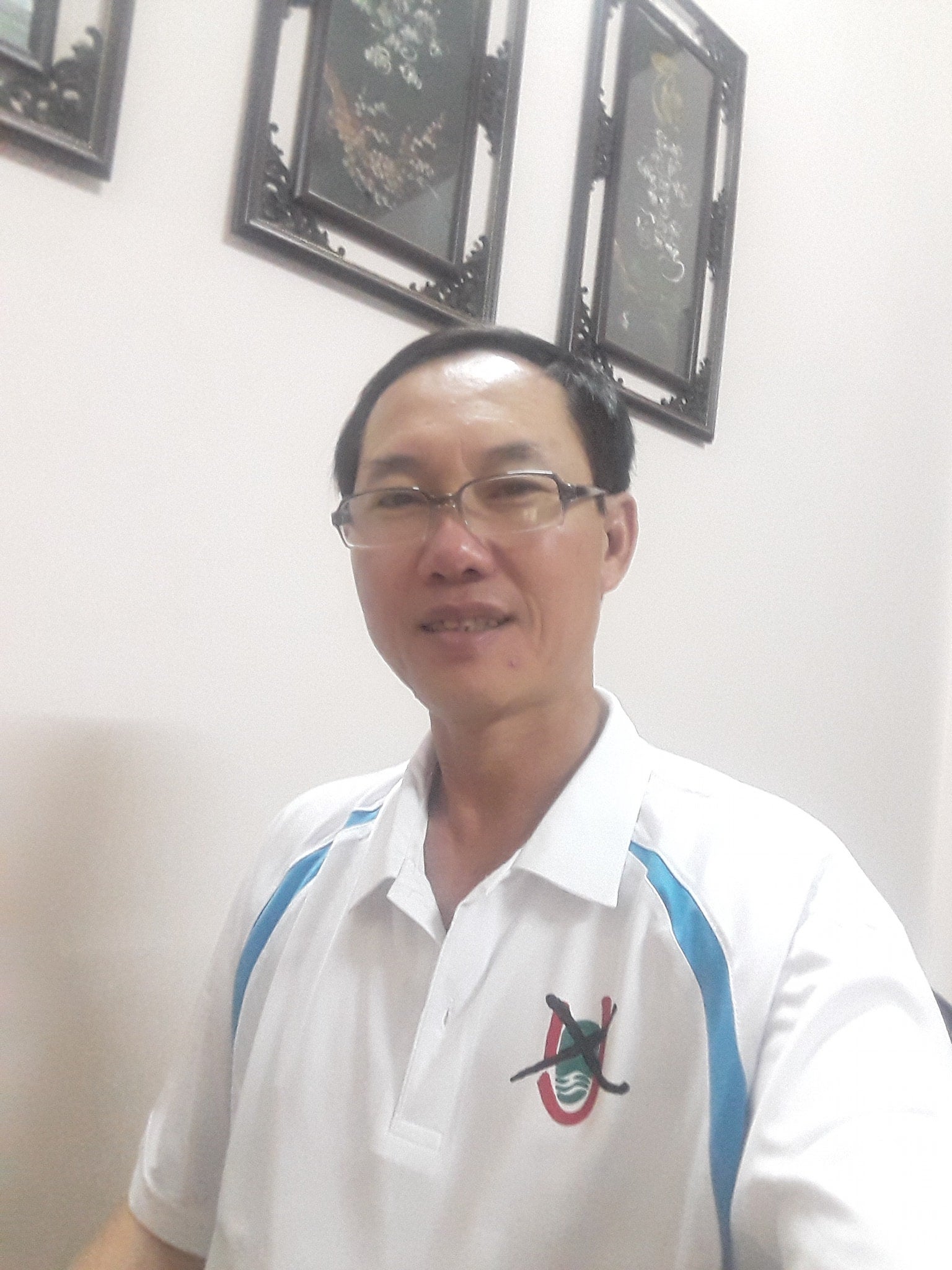
Dang Dang Phuoc

Dang Dang Phuoc
Sentenced: 8 years
Dang Dang Phuoc (born 1963) was convicted and sentenced to eight years in prison for criticizing the government.
Dang Dang Phuoc served in the Vietnamese army and was stationed in Laos for over four years. After leaving the armed forces, he became a music teacher at the Dak Lak College of Pedagogy. Dang Dang Phuoc has often commented on social, political, and environmental issues, and supported the cause of the poor and powerless, including land rights petitioners and Montagnard minority groups. He wrote: “I defend righteousness and the powerless. I do not care about fame and wealth.” For this reason, he stated that he “raises his voice to help reduce social injustice.”
During the past decade, Dang Dang Phuoc has campaigned against corruption and the abuse of power at the grassroots level. He has advocated for better protection for civil and political rights, including freedom of speech, expression, association, assembly, and religion. He openly opposed Vietnam’s repressive 2018 cybersecurity law.
Dang Dang Phuoc signed several pro-democracy petitions, including Petition 72, issued in January 2013, calling for constitutional changes to allow multiparty elections. He also signed the Declaration of Free Citizens, issued in February 2013, seeking to abolish article 4 in Vietnam’s 1992 Constitution, which grants the Communist Party of Vietnam a monopoly on power. The declaration called for creating a multiparty political system, separation of powers, and the depoliticization of the armed forces.
He also spoke out to raise awareness about exploitative economic projects that have a negative impact on the environment. In May 2016, he signed a declaration against Formosa, a Taiwanese steel company that dumped toxic waste and caused a massive marine pollution disaster along the central coast of Vietnam. The declaration’s signatories called for a thorough and transparent investigation of the incident, compensation for people who lost their livelihoods due to the disaster, and accountability. In July 2022, shortly before his arrest, he voiced his concerns about what he termed “reckless” titanium mining in Thua Thien Hue province.
Dang Dang Phuoc showed solidarity with other dissidents by publicly voicing support for rights activists imprisoned by the Vietnamese authorities, including Nguyen Thuy Hanh, Tran Huynh Duy Thuc, Pham Doan Trang, Trinh Ba Phuong, Trinh Ba Tu, Can Thi Theu, Nguyen Lan Thang, Dinh Van Hai, Y Wo Nie, Nguyen Tuong Thuy, Pham Chi Dung, Le Huu Minh Tuan, Pham Chi Thanh, Dinh Thi Thu Thuy, and Bui Van Thuan.
On September 8, 2022, he wrote a Facebook post in support of the rights activist Bui Tuan Lam (known as “Green Onion Bae”) who was arrested on September 7 by the Da Nang police. Less than two hours later, Dak Lak police moved to arrest Dang Dang Phuoc, and charged him with conducting propaganda against the state under article 117 of the penal code.
On September 8, 2022, he wrote a Facebook post in support of the rights activist Bui Tuan Lam (known as “Green Onion Bae”) who was arrested on September 7 by the Da Nang police. Less than two hours later, Dak Lak police moved to arrest Dang Dang Phuoc, and charged him with conducting propaganda against the state under article 117 of the penal code.
On June 6, 2023, a court in Dak Lak province sentenced Dang Dang Phuoc to eight years in prison and four years of probation after his release.
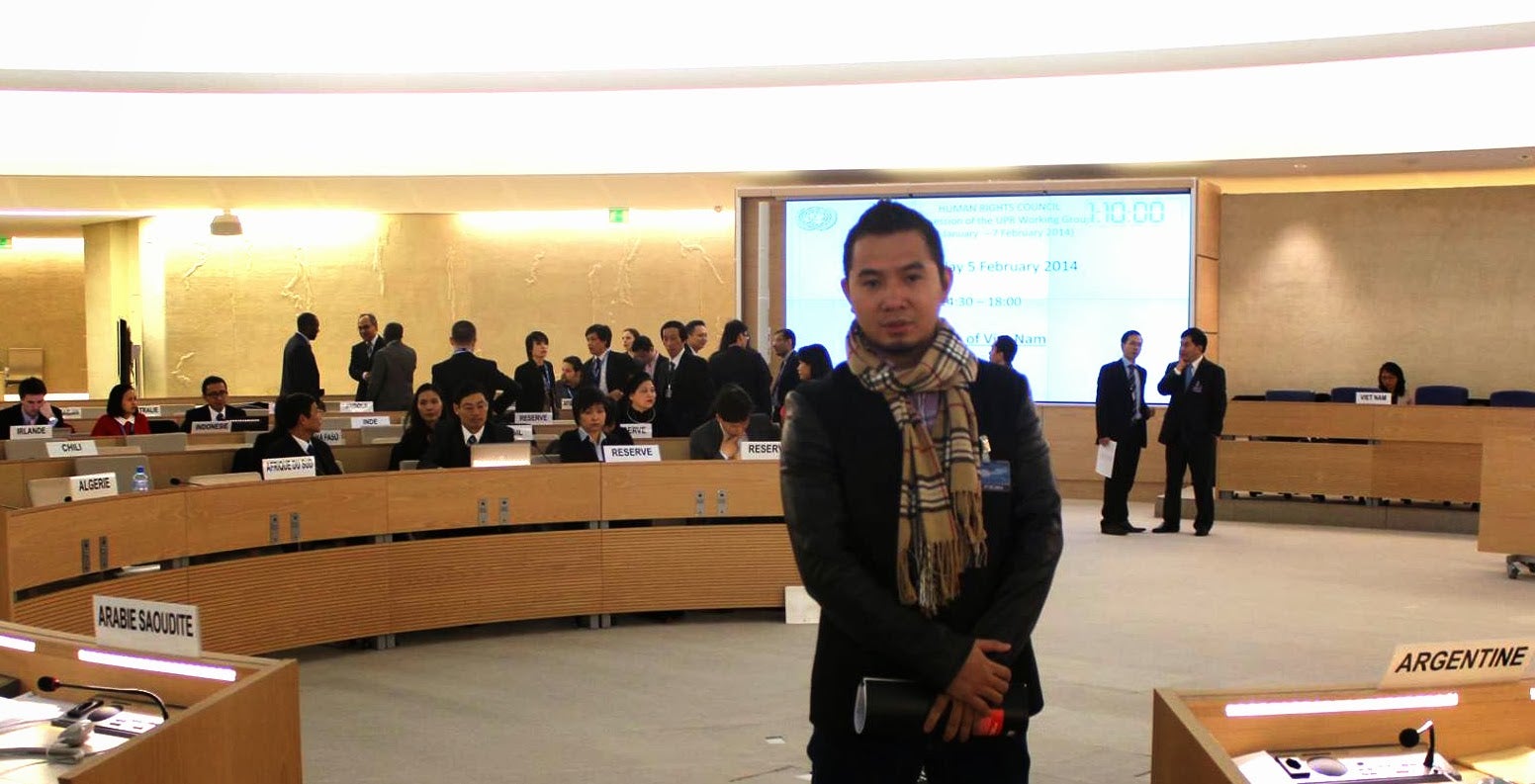
Bui Tuan Lam

Bui Tuan Lam
Sentenced: 5.5 years
Bui Tuan Lam (born 1984) is serving five years and six months in prison for criticizing the government.
Bui Tuan Lam (also known as Peter Lam Bui or Green Onion Bae), has publicly advocated democracy for Vietnam over the past decade. He has said that his “ideology and passion” is “to advocate for freedom, democracy and human rights,” and he expressed longing for “human rights to become universal in his homeland.”
Bui Tuan Lam has participated in many anti-China and pro-environment protests over the years. He once joined the now-dormant No-U FC (No U-line Football Club), a soccer team whose members made it their cause to speak out against China’s territorial claims on maritime areas claimed by Vietnam.
He participated in a No-U humanitarian group to provide assistance to impoverished people in remote areas and victims of natural disasters in Vietnam. In April 2020, the Da Nang police harassed and threatened him for providing food relief to local people during the Covid-19 pandemic. Bui Tuan Lam frequently voiced support for fellow activists, political prisoners, and their families.
In February 2014, Bui Tuan Lam travelled to Geneva to participate in a civil society campaign for human rights during Vietnam’s Universal Periodic Review session at the United Nations Human Rights Council. Facing the risk of retaliation from Vietnamese government officials, he prepared a video before he returned to Vietnam, asking supporters to release it if he was detained and calling on them to continue campaigning for freedom and democracy. When he returned to Vietnam, police detained him at the airport, interrogated him for hours and confiscated his passport. He has not been allowed to leave Vietnam since then.
In April 2014, when Bui Tuan Lam was returning from visiting the house of the former political prisoner Huynh Ngoc Tuan, men in civilian clothes assaulted and beat him brutally.
The police have frequently harassed and threatened him for his activism. When he lived in Ho Chi Minh City working as an advertising designer, the police pressured his landlord to evict him and compelled his employer to fire him. Bui Tuan Lam was forced to move back to his hometown, Da Nang, where he opened a sidewalk food stand to earn a living.
Bui Tuan Lam became famous in November 2021 for making a parody video of himself spreading green onion on noodle soup, imitating the celebrity chef Salt Bae, who was seen spreading salt over a US$2,000 gold-encrusted steak and spoon-feeding it to Vietnam’s public security minister, To Lam. Police summoned and interrogated Bui Tuan Lam several times, and pressured him to close his noodle soup shop which he did for a few days.
Police arrested Bui Tuan Lam in September 2022 and charged him for conducting propaganda against the state under article 117 of the penal code. Police kept him incommunicado for more than seven months, with the prosecutors claiming that he didn’t want legal counsel. When Bui Tuan Lam’s wife, Le Thanh Lam, successfully challenged this, the authorities retaliated by refusing to let her attend her husband’s May 25 trial in Da Nang. She still showed up outside the court, where police apprehended, manhandled, and dragged her in the street, injuring her legs. She said that police detained her for several hours, “searched every inch on my body” and “treated me as if I were no longer human.” They released her that evening, long after the trial had finished. The debacle continued inside the court. The judge ordered a defense lawyer, Ngo Anh Tuan, removed from the courtroom before he could even finish his argument.
The court in Da Nang convicted and sentenced Bui Tuan Lam to five years and six months in prison, and four years of probation after his release.
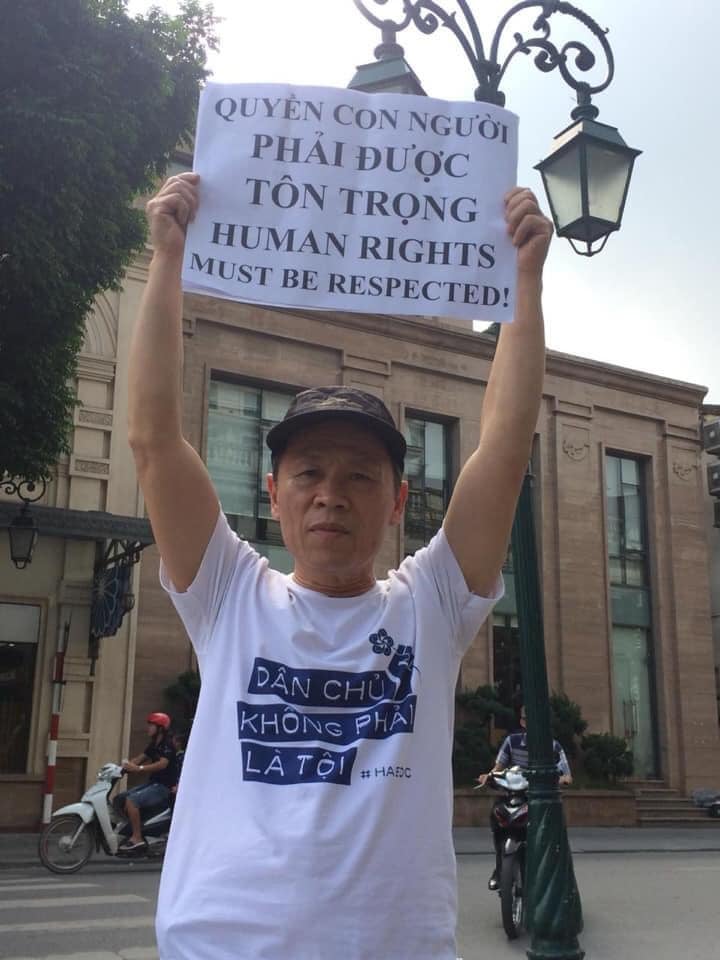
Truong Van Dung

Truong Van Dung
Sentenced: 6 years
Truong Van Dung (born 1954) is currently serving a six-year prison sentence for criticizing the government.
Truong Van Dung first became active in land rights advocacy in the 2000s, campaigning against forced confiscation of his own house. In the early 2010s, he joined other activists and began to advocate for basic rights, including freedom of expression, association, and assembly. Between 2011 and 2018, he also participated in numerous anti-China and pro-environment protests. He joined a protest opposing Vietnam’s problematic 2018 law on cybersecurity and publicly boycotted Vietnam’s national “elections,” a process controlled by the Vietnam Communist Party which is neither free nor fair.
He also publicly voiced support for numerous political prisoners and detainees, including Nguyen Thuy Hanh, Pham Doan Trang, Can Thi Theu, Nguyen Thi Tam, Trinh Ba Tu, Trinh Ba Phuong, Le Dinh Luong, Hoang Duc Binh, Nguyen Tuong Thuy, Pham Chi Dung, Le Huu Minh Tuan, Do Nam Trung, and members of Hoi Anh em Dan chu (Brotherhood for Democracy).
In December 2013, Truong Van Dung and other activists founded a humanitarian group, Hoi Bau bi Tuong Than (Association of Gourd and Squash Mutual Assistance), to provide financial and spiritual support for political prisoners, land rights petitioners, and their families.
Truong Van Dung has experienced years of government harassment and intimidation, including police interrogations, house arrest, a travel ban, and physical assaults by plain-clothes agents. In March 2014, after being attacked and injured by men in civilian clothes, he told a reporter at Radio Free Asia: “I will not budge. The more they act [attack] this way, the more inspired I will be on my path, no less … I am very proud of myself. I did nothing to be ashamed of.”
After his arrest in May 2022, Truong Van Dung was held incommunicado for more than nine months. He was allowed to meet with his lawyer for the first time in March. His family has not been allowed to see him. Vietnam’s courts, controlled by the ruling Communist Party of Vietnam, are not independent and hearings and trials do not meet international standards.
Police in Hanoi arrested Truong Van Dung in May 2022 on charges of “conducting propaganda against the state.” On March 28, 2023, a court convicted and sentenced him to six years in prison.
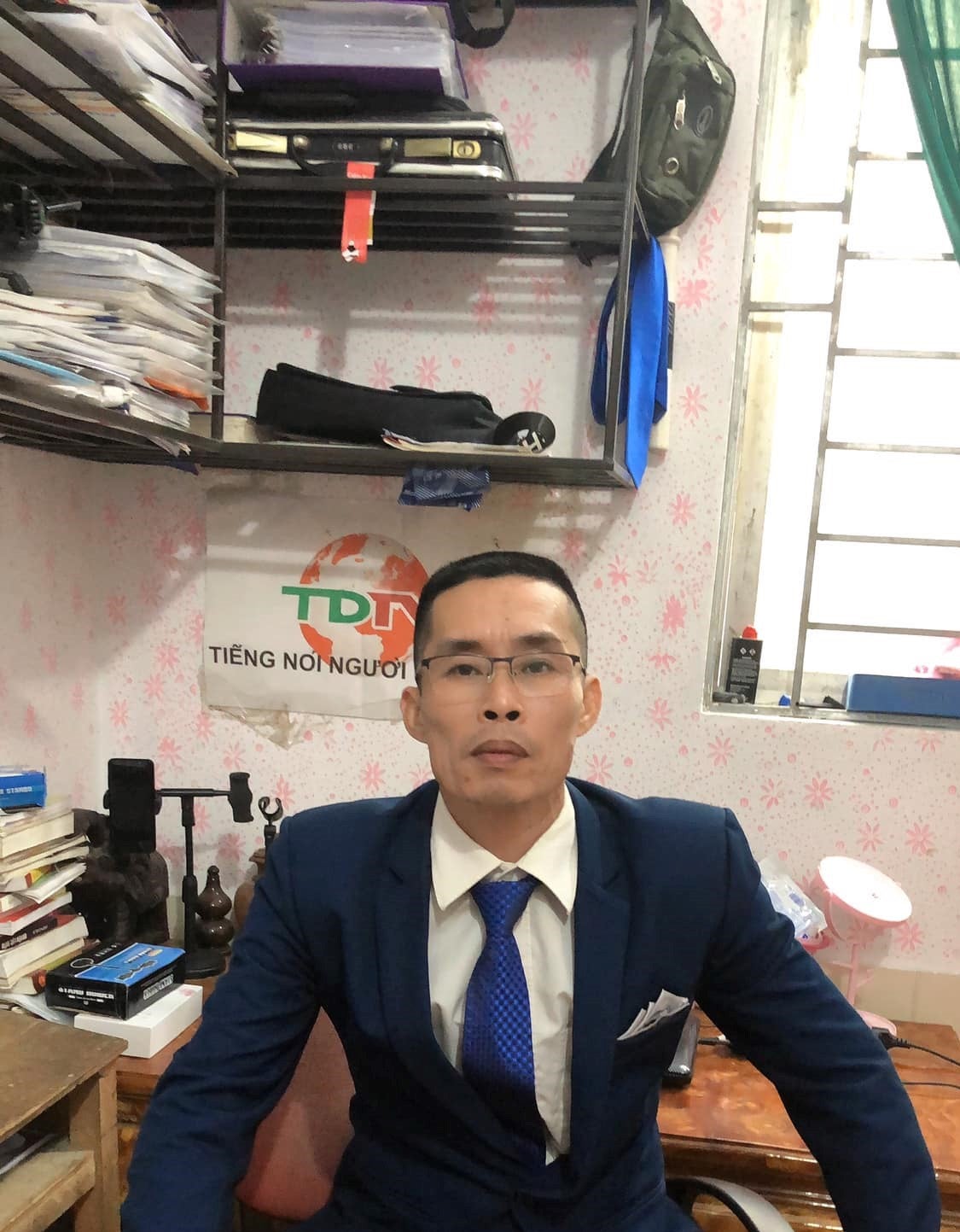
Le Manh Ha

Le Manh Ha
Sentenced: 8 years
Le Manh Ha (born 1970) is a citizen journalist who is serving an eight-year prison sentence for criticizing the Communist Party and the Vietnam government.
Le Manh Ha has been active as a land rights petitioner since the early 2000s. He campaigned against the relocation of farmers who were displaced by a major hydroelectric project in the Tuyen Quang province. In May 2018, he founded an YouTube Channel called Tieng Dan TV Le Ha (Voice of the People – Le Ha Television) to give the opportunity to land petitioners and farmers to record videos in which they speak out against the injustices they face. His motto is “to promote the Constitution in order to guarantee the rights for citizens.”
Le Manh Ha interviewed many land rights petitioners across Tuyen Quang province. He publicly announced that his objective is to promote the upholding of the Vietnam Constitution and protecting basic citizens’ rights, including the rights to petition and to denounce. He also stated that he wants to enhance people’s knowledge and build a genuine democratic society.
The week before the authorities arrested him, Le Manh Ha posted on his Facebook: “In Vietnam, corruption defeated the people because corruption has been equipped with modern weapons. The people have no weapon except for their cell phones to fight against corruption.”
Le Manh Ha also frequently voiced support and solidarity for fellow citizen journalists including Le Trong Hung, Le Van Dung, and Pham Doan Trang.
Tuyen Quang provincial police arrested Le Manh Ha in January 2022 and charged him with “making, storing, disseminating or propagandizing information, materials and products that aim to oppose the State of the Socialist Republic of Vietnam” under article 117 of the penal code.
The Tuyen Quang provincial newspaper claimed that “Le Manh Ha had prepared, posted and shared on social media, including YouTube and Facebook, many articles and video clips with content that propagandize, distort and defame the people’s administration, insult great leader Ho Chi Minh and leaders of the Party and the State; and spread fabricated information to sow confusion among the people.”
In October 2022, a Tuyen Quang provincial court put Le Manh Ha on trial. According to Tuyen Quang newspaper, during the trial, Le Manh Ha said that “his writing are results of what he read on Facebook or watched on social media, and found that such content exposed the current state of Vietnam including corruption, power and status buying, territorial sovereignty issues, inadequacies in management and exploitation of the country’s natural resources and minerals, inadequate compensation for resettlers after land confiscation, the lack of confidence in elected members of the National Assembly, problems in education and health care system, current youth’s perception of freedom and democracy. He found that such contents are consistent with his thoughts and views, and thus he copied and posted them on Facebook, or shared them.”
The court found Le Manh Ha’s actions to copy, post and share such information “very dangerous for society, violating national security, and contravening the policies of the Party.” It convicted and sentenced him to eight years in prison, to be followed by five years on probation.
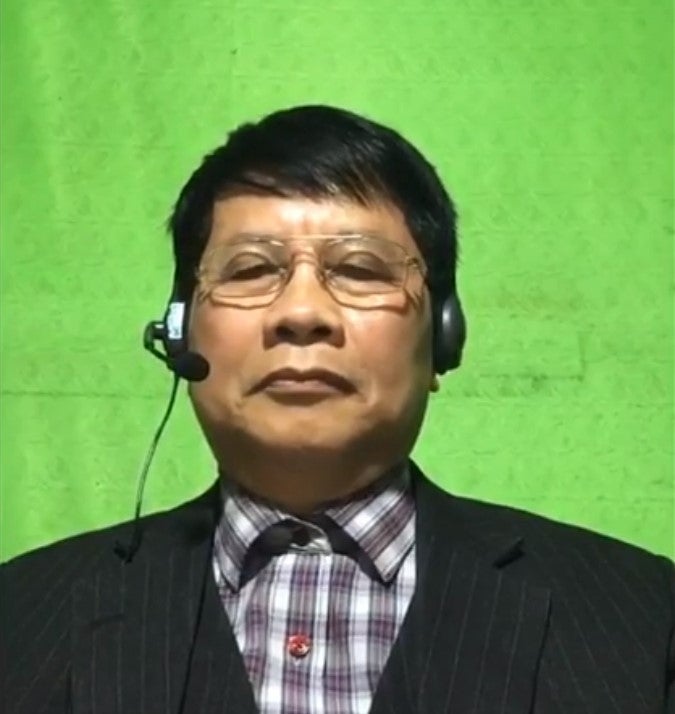
Tran Quoc Khanh

Tran Quoc Khanh
Sentenced: 6 years
Tran Quoc Khanh (born 1960) is serving a six-and-a-half-year prison sentence for criticizing the government.
Tran Quoc Khanh began to use Facebook to discuss social and political issues in the mid-2000s. He shared news considered sensitive in Vietnam such as the trial of farmers in the violent land dispute at Dong Tam commune. In 2021, he visited the family of political prisoner Vu Quang Thuan to show support.
In September 2019, Tran Quoc Khanh submitted an application to the Ministry of Home Affairs to establish an organization called the Vietnam Democracy Association with the goal “to unite all Vietnamese individuals and organizations who can enthusiastically and voluntarily campaign for Vietnamese citizens to enjoy human rights and the rights and responsibilities to decide the fate of the country and the nation.” The ministry dismissed his application. In October 2019, he wrote on Facebook, “Let’s have a democratic and free election for 94 million Vietnamese people. To plant the insiders from a single party only is to go against the principle of freedom and democracy, and robs the rights of the remaining majority. Can we see the robber of power as a talented entity?”
Tran Quoc Khanh gained public attention when he announced that he would run as an independent candidate for the national election in May 2021. He conducted several open public debates via livestream on Facebook in February and March 2021 with Le Trong Hung, another self-nominated independent candidate. The two also exchanged their views on a number of politically sensitive topics, including the Vietnam Constitution and the need for a political plural system.
In February 2021, Ninh Binh provincial police summoned Tran Quoc Khanh to its headquarters and questioned him about his livestream sessions on Facebook. They also questioned him about his application to form the Vietnam Democracy Association, and his self-nomination to contest for a seat in the National Assembly.
On March 1, 2021, he filed a lawsuit against the Ministry of Interior Affairs for arbitrarily rejecting his request to form a democracy group. Police arrested him nine days later and charged him with “making, storing, disseminating or propagandizing information, materials and products that aim to oppose the State of the Socialist Republic of Vietnam” under article 117 of the penal code.
According to state media, between September 2019 and January 2021, “Tran Quoc Khanh had used his Facebook account and the fan page ‘Voice of Citizen [Tieng noi Cong dan]’ to livestream 22 videos with content that distort and vilify the people’s administration, sowing doubt among the people. He misled, distorted, fabricated the policies and guidelines of the Communist Party of Vietnam, the policies and law of the state; he fabricated, belittled and vilified leaders of the Party and the State; he mispresented our history and rejected the revolution’s achievement; he rejected and rebuffed the leading role of the Communist Party of Vietnam; he urged for plurality, a multi-party system, and separation of power, against the State.”
In October 2021, a Ninh Binh provincial court convicted and sentenced Tran Quoc Khanh to six years and six months in prison, to be followed by two years’ probation.
According to a court document, during the trial, Tran Quoc Khanh denied that “his actions were meant to oppose the State of Socialist Republic of Vietnam” and insisted that his actions “were transparent and democratic with aims to build and develop the country.”
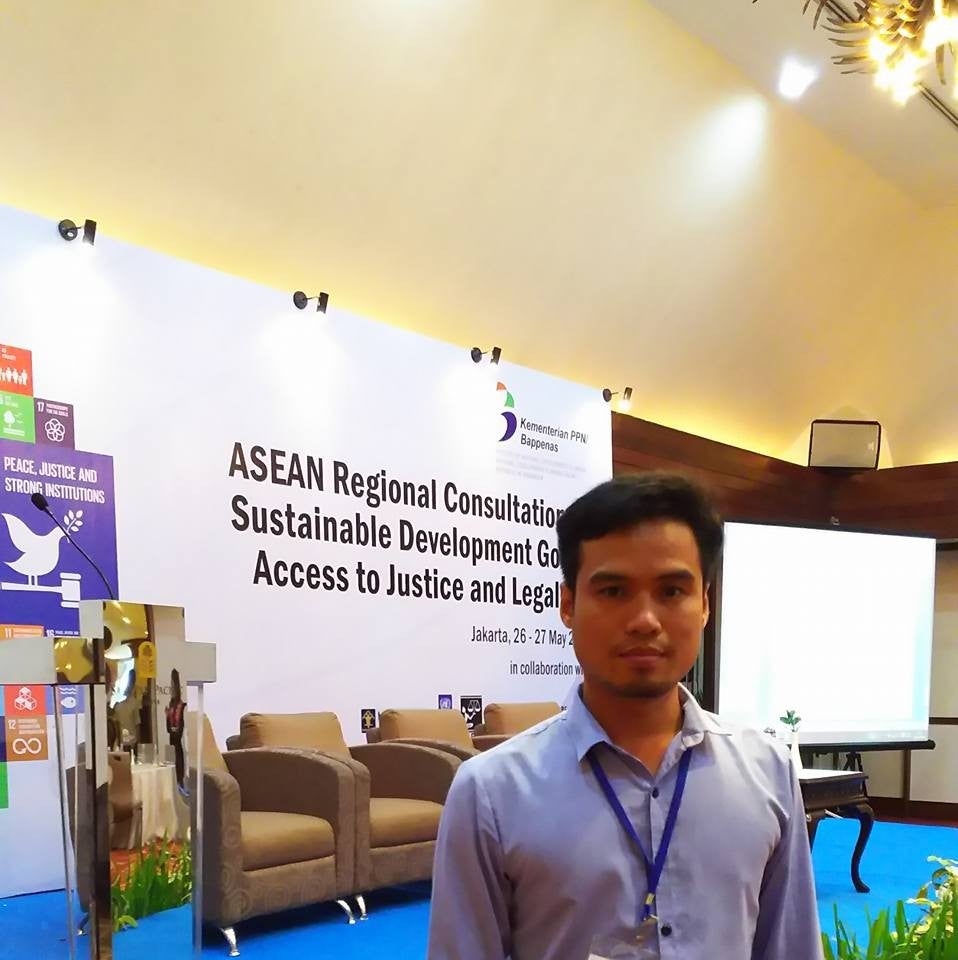
Dang Dinh Bach

Dang Dinh Bach
Sentenced: 5 years
Dang Dinh Bach (born 1978) is an environmental activist who is serving a five-year prison sentence on a politically motivated tax evasion charge.
Dang Dinh Bach was the director of Law & Policy of Sustainable Development (LPSD), an independent and non-profit center working to promote sustainable development in Vietnam. The center has participated in many environmental coalitions including Mekong Legal Network, Save the Mekong Coalition, Vietnam Environmental Network, and Vietnam Sustainable Energy Alliance. It spearheaded grassroots programs such as Green Sunday, educating people to reduce the use of plastics and increase planting trees.
In November 2020, Dang Dinh Bach joined 29 other civil society activists to establish the Vietnam Non-Government Organizations and European Union - Vietnam Free Trade Agreement (VNGO-EVFTA) network to promote the participation of independent civil society groups in the Domestic Advisory Group, a body the EU and Vietnam agreed to set up to allow independent civil society to monitor the implementation of EVFTA. Dang Dinh Bach was elected to the network executive board.
In addition to his advocacy for the environment, Dang Dinh Bach also voiced his opinions on issues deemed politically sensitive in Vietnam, including expressing sympathy for victims of the Tiananmen Square massacre in China in 1989, supporting protesters in Hong Kong in 2019, and raising concerns about the problematic case of death-row prisoner Ho Duy Hai.
In January 2022, the authorities put Dang Dinh Bach on trial, and the court convicted and sentenced him to five years in prison. Dang Dinh Bach appealed the verdict in August, but his appeal was rejected. During the appeal trial, the authorities claimed that Dang Dinh Bach did not "repent".
The European Union protested the imprisonment of Dang Dinh Bach in August 2022.
According to Dang Dinh Bach's wife, he went on at least three hunger strikes (in January, July and November 2022) to protest against his arbitrary arrest and detention.
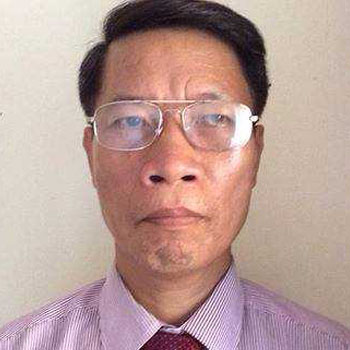
Le Thanh Tung

Le Thanh Tung
Sentenced: 12 years
Le Thanh Tung, also known as Le Ai Quoc, born 1968, is serving a 12-year sentence for calling for democracy in Vietnam.
Le Thanh Tung joined the Vietnam People’s Army in 1986 and was stationed in Vietnam’s Central Highlands and Cambodia. In 1991, he left the army and worked as a freelance laborer. In 2006, Le Thanh Tung began to advocate for freedom and democracy in Vietnam and a year later joined Bloc 8406. Le Thanh Tung blogged and reported as a citizen journalist about land disputes and workers’ strikes. He helped people whose land had been expropriated prepare petitions with supporting documents to hand over to the government. He also penned a number of articles urging the government of Vietnam to adopt a democratic and multi-party political system.
Because of his activism, Le Thanh Tung faced a campaign of official harassment, including being subject to public criticism and forced to make a public self-denunciation. In December 2011, the police arrested and charged him under article 88 of the Vietnam Penal Code for “conducting propaganda against the Socialist Republic of Vietnam.” In August 2012, the People’s Court of Hanoi sentenced him to five years in prison. In November 2012, the People’s Supreme Court reduced his sentence to four years in prison.
Le Thanh Tung was released in June 2015, a few months before the end of his sentence. But he was not free for long. Police arrested him again in December 2015 for allegedly co-founding a group called “National Forces Raise the Flag of Democracy” (Luc luong Quoc dan Dung co Dan chu; see also the case of Tran Anh Kim). The charges this time focused on “activities that aim to overthrow the people’s administration” under article 79. In December 2016, the People’s Court of Thai Binh sentenced him to 12 years in prison.
In August 2017, Le Thanh Tung was transferred from Ba Sao prison in Ha Nam province to prison No. 5 in Thanh Hoa province.
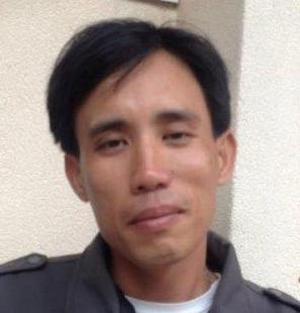
Hoang Duc Binh

Hoang Duc Binh
Sentenced: 14 years
Hoang Duc Binh, born 1983, was sentenced to 14 years in prison for his activism to promote the rights of workers and fishermen.
Hoang Duc Binh is vice president of Viet Labor Movement (Phong trao Lao dong Viet), an independent organization founded in 2008 to promote workers’ rights. In December 2015, the police detained him briefly for distributing leaflets that advocated allowing the formation of independent labor unions. The leaflets cited then-Prime Minister Nguyen Tan Dung’s promise that Vietnamese workers would be able to form and join independent unions under the proposed Trans-Pacific Partnership economic agreement. Hoang Duc Binh told Nguoi Viet newspaper that he was beaten in detention. Fellow activists who went to the police station to demand his release were also assaulted.
Hoang Duc Binh has repeatedly and publicly voiced support for political prisoners and detainees. He has also participated in several of the Formosa protests and helped organize groups advocating compensation for fishermen who lost their livelihood in relation to the 2016 toxic spill.
Bao Nghe An, the news organ for the Communist Party branch of Nghe An province, accused Hoang Duc Binh of “often posting and sharing on his personal Facebook account information and materials that propagandize against the regime and advocate for pluralism and multi-parties. Taking advantage of the environmental incident in the central coast, as the vice president of ‘Viet Labor Movement,’ Hoang Duc Binh had pushed for and formed a ‘Union for Fishermen in the Central Region’ [Hiep hoi ngu dan mien Trung], with the intention to build a peripheral organization, to gather forces, and incite Catholic people and fishermen from the Central region to participate in his organization; searching for a ‘nuclear factor’ to incite protests and disrupt security and order.”
On May 15, 2017, Hoang Duc Binh was riding as a passenger in the car of Father Nguyen Dinh Thuc, another human rights defender, when they were stopped by traffic police. Father Thuc wrote in a statement published on the Saigon Broadcasting Television Network website that a group of men in civilian clothes and police in uniform “suddenly appeared, jerked the door open, and forcefully dragged Hoang Duc Binh out of the car and took him away,” without any arrest warrant. That evening, the Nghe An television network broadcast the news of Hoang Duc Binh’s arrest. On the arrest warrant shown on TV, he had written: “I do not agree [with the charges] because the Nghe An police have beaten me and arrested me illegally.”
Nghe An province police charged Hoang Duc Binh with “abusing freedom and democracy to infringe upon the interests of the State, the legitimate interest and rights of organizations and citizens” under article 258 and “resisting persons on public duty” under article 257 of the penal code. In February 2018, the People’s Court of Dien Chau district (Nghe An province) put Hoang Duc Binh on trial and sentenced him to 14 years in prison.
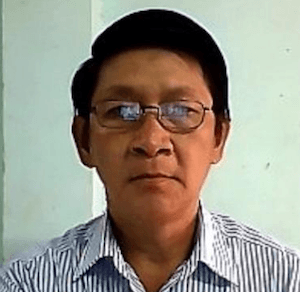
Truong Minh Duc

Truong Minh Duc
Sentenced: 12 years
Truong Minh Duc, born 1960, was convicted to 12 years in prison for being affiliated with a pro-democracy group.
Truong Minh Duc is a journalist who wrote and published in various mainstream newspapers in Vietnam, including Vanguard (Tien phong), Youth (Thanh nien), Law (Phap luat), and Kien Giang (the newspaper of his hometown). His writing exposed corruption and wrongdoing committed by local authorities involved in land ownership. He called people to help those in difficult situations. In 2006, he joined the pro-democracy Bloc 8406 and the Populist Party, which “aims to participate in the struggle to advance social democratic process and to build a new Vietnam with peace, freedom, prosperity and progress.”
Truong Minh Duc was arrested in May 2007 and charged with “abusing rights to democracy and freedom to infringe upon the interest of the state” under article 258 of the penal code. He was convicted and sentenced to five years in prison. Since completing his prison term in May 2012, Truong Minh Duc resumed writing about rights issues. He advocates for fellow prisoners of conscience who continue to face harassment in prison simply because they refuse to repent. He joined the Free Viet Labor Federation (Lao dong Viet) from 2014-2016 and the Viet Labor Movement (Phong trao Lao dong Viet) in 2016 to campaign for workers’ rights. He is also a member of the Former Vietnamese Prisoners of Conscience (Hoi Cuu Tu nhan Luong tam Viet Nam), and the Brotherhood for Democracy, founded in 2013 “to defend human rights recognized by the Vietnam Constitution and international conventions” and “to promote the building of a democratic, progressive, civilized and just society for Vietnam.” He campaigned against Formosa, a Taiwanese steel company that dumped toxic waste into the sea and caused a massive marine disaster along the central coast of Vietnam.
Due to his human rights activities, Truong Minh Duc encountered harassment, intimidation, house arrest, interrogation, and physical assault. In September 2014, when Truong Minh Duc went with three other activists to the Ministry of Public Security in Hanoi to inquire about the prohibition of labor rights campaigner Do Thi Minh Hanh’s trip abroad, a group of men in civilian clothes attacked and beat him until he lost consciousness. In November 2014, he was severely beaten by a group of eight men, one of whom he identified as a police officer named Hoa, who interrogated and beat him two months earlier at the police station of My Phuoc ward, Ben Cat district (Binh Duong province). In November 2015, the police of Dong Nai province detained and assaulted Truong Minh Duc and labor activist Do Thi Minh Hanh for helping workers at Yupoong Company exercise their rights.
In July 2017, the police arrested Truong Minh Duc and charged him with carrying out activities that aimed to overthrow the people’s administration under to article 79 of the penal code.
Truong Minh Duc was awarded a Hellman/Hammett free expression grant in 2013 and the Vietnam Human Rights award by the Vietnam Human Rights Network in 2010.
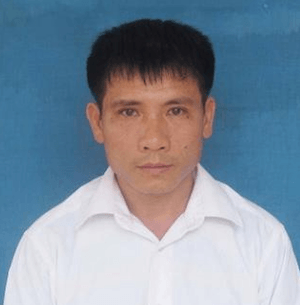
Nguyen Trung Ton

Nguyen Trung Ton
Sentenced: 12 years
Nguyen Trung Ton, born 1972, was convicted to 12 years in prison for being affiliated with a pro-democracy group.
Nguyen Trung Ton is an independent Protestant pastor and a blogger whose writings focus on the lack of religious freedom and other rights issues in Vietnam. He has written about local land confiscation and corruption that has driven many peasants into landless situations. He criticized the government’s spending of tax money on festivals instead of building infrastructure, schools, or helping the poor. He supported fellow religious activists including independent Hoa Hao Buddhist leader Le Quang Liem and Mennonite pastor Duong Kim Khai. Nguyen Trung Ton has written about police harassment and assaults against him and his family.
Nguyen Trung Ton has encountered harassment, intimidation, house arrest, interrogation, and physical assault on numerous occasions. In May 2003, men in civilian clothes attacked his home, which he had turned into a house church. In June 2006, he was summoned by the police after attending a church worship service and was assaulted during interrogation. In August 2009, during an independent praying session at a private house, men in civilian clothes accompanied by local officials attacked and beat Nguyen Trung Ton’s family and fellow religious activists. In June 2010, his teenage son Nguyen Trung Trong Nghia was beaten on his way to school by five anonymous men after his father exposed police abuses.
Nguyen Trung Ton was arrested in January 2011 for conducting propaganda against the state and was sentenced to two years in prison. After completing his prison term in January 2013, Nguyen Trung Ton immediately resumed his campaign for human rights and democracy. He wrote a prison memoir that was published in Dan Lam Bao (Citizen Journalism). He advocated for political prisoners to be released. He joined the Former Vietnamese Prisoners of Conscience (Hoi Cuu Tu nhan Luong tam Viet Nam) and the Brotherhood for Democracy, founded in 2013 “to defend human rights recognized by the Vietnam Constitution and international conventions” and “to promote the building of a democratic, progressive, civilized and just society for Vietnam.” He campaigned against Formosa, a Taiwanese steel company that dumped toxic waste into the sea and caused a massive marine disaster along the central coast of Vietnam.
In February 2017, Nguyen Trung Ton and a friend took a bus from Quang Thing commune, Thanh Hoa province to Ba Don town, Quang Binh province. Upon arrival, a group of seven or eight young men in civilian clothing dragged them into a van, took their belongings, stripped their clothes off, covered their heads with their jackets, and beat them repeatedly with iron tubes. The perpetrators later abandoned Nguyen Trung Ton and his friend in a deserted forest in Ha Tinh province. Nguyen Trung Ton was seriously injured and had to undergo an operation at a local hospital.
In July 2017, the police arrested Nguyen Trung Ton and charged him for carrying out activities that aimed to overthrow the people’s administration under article 79 of the penal code.
Nguyen Trung Ton was awarded a Hellman/Hammett free expression grant in 2013.
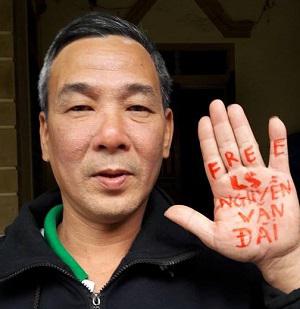
Le Dinh Luong

Le Dinh Luong
Sentenced: 20 years
Le Dinh Luong, born 1965, is convicted to 20 years in prison for campaigning for human rights and democracy.
Le Dinh Luong is a Catholic activist who has participated in many activities deemed politically unacceptable by the Vietnamese authorities. He signed a petition against bauxite mining in the Central Highlands. He joined public protests Formosa Ha Tinh Steel, the Taiwanese company that dumped toxic waste into the ocean, causing massive fish deaths and an environmental disaster off Vietnam’s central coast in April 2016.
He publicly declared a boycott of the national election in May 2016. He also expressed support for political prisoners such as Nguyen Van Dai, Nguyen Viet Dung, and Ho Duc Hoa. To show solidarity, Le Dinh Luong frequently visited former political prisoners upon their release from prison, as well as the families of people in prison for campaigning for democracy and human rights.
Le Dinh Luong campaigned to revoke laws used to silence dissent such as article 258 of the 1999 Penal Code, which imposes up to seven years in prison for “abusing the rights to freedom and democracy to infringe upon the interests of the state.” According to his nephew, prominent rights activist Le Quoc Quan, Le Dinh Luong also campaigned for the rights of farmers to refuse to pay excessive educational and agricultural output fees imposed by local authorities.
In August 2015, Le Dinh Luong and several other activists visited a political activist, Tran Minh Nhat, in Lam Ha district, Lam Dong province. Police released Tran Minh Nhat shortly after he completed a four-year sentence for allegedly being involved in the foreign-based political party Viet Tan. When the visitors were leaving the area, men in civilian clothes brutally attacked them.
On July 24, 2017, Le Dinh Luong and a fellow activist, Thai Van Hoa, visited the family of a former political prisoner, Nguyen Van Oai, who had been arrested a second time in January 2017. Thai Van Hoa said that when they left, a group of men in civilian clothes beat them and forced them into separate vans. Later that day, the police announced that they arrested Le Dinh Luong and charged him with “carry[ing] out activities that aim to overthrow the people’s administration” under penal code article 79. The police and the army newspapers accused Le Dinh Luong of being a “dangerous reactionary” and a member of the outlawed Viet Tan party.
In August 2018, the People’s Court of Nghe An put him on trial and convicted him to 20 years in prison.
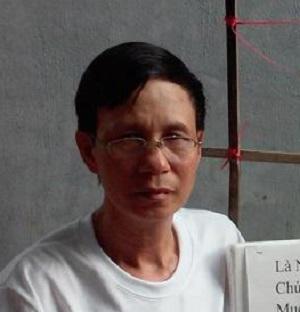
Nguyen Van Tuc

Nguyen Van Tuc
Sentenced: 13 years
Nguyen Van Tuc, born 1964, is serving a 13-year prison sentence for campaigning for democracy and human rights.
Nguyen Van Tuc started campaigning against corruption and land rights confiscations in the early 2000s in his hometown of Dong La commune, Dong Hung district, Thai Binh province. He later joined the 8406 Bloc, a group founded on April 8, 2006 to advocate for a multi-party, democratic political system and human rights in Vietnam. He published articles denouncing the authorities for corruption and their abuses of human rights.
He wrote, “I am a land rights petitioner with little education. But the love I feel for my fellow people and the pain I feel for my nation compels me to be brave and speak against social injustice. Even if I had to sacrifice my life so that people will be able to attain happiness, the country attain freedom and democracy, and society can improve, I would do so, without any regret.”
In September 2008, the police arrested Nguyen Van Tuc after he and other activists hung a banner on an overpass in the city of Hai Phong that said, “the ward of Tien Phong resolutely fights to eliminate corruption. [We] request the Government to firmly defend our Fatherland. [We] request the Communist Party of Vietnam to accept pluralism and a multi-party system.” Authorities charged him with conducting propaganda against the state under article 88 of the 1999 penal code. In October 2009, the People’s Court of Hai Phong put Nguyen Van Tuc and five other activists on trial. He was convicted and sentenced to four years in prison.
Upon his release from prison in September 2012, he immediately resumed his campaign for human rights and democracy. He joined the Brotherhood for Democracy, which was founded in April 2013 by Nguyen Van Dai, and fellow human rights activists “to defend human rights recognized by the Vietnam Constitution and international conventions” and “to promote the building of a democratic, progressive, civilized and just society for Vietnam.” The Brotherhood for Democracy has served as a network for activists both inside and outside of Vietnam.
Nguyen Van Tuc was arrested again in September 2017 and charged with “carrying out activities that aim to overthrow the people’s administration” under article 79 of the 1999 penal code. The People’s Daily accused him of joining “a reactionary organization that operates illegally, with a plot to eliminate the leadership role of the Communist Party of Vietnam, to overthrow the people’s administration and change the political regime.”
In April 2018, during a trial that lasted only several hours, the People’s Court of Thai Binh convicted him and sentenced him to 13 years in prison.
Nguyen Van Tuc’s wife, Bui Thi Re, has publicly stated her husband is in poor health, with ailments including heart disease and keratitis, an inflammation of the eye.
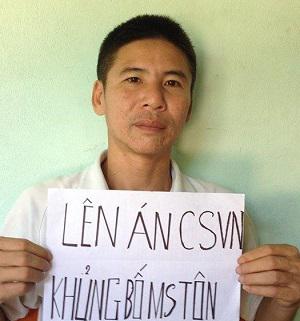
Nguyen Trung Truc

Nguyen Trung Truc
Sentenced: 12 years
Nguyen Trung Truc, born 1974, is convicted and sentenced to 12 years in prison for campaigning for democracy and human rights.
Nguyen Trung Truc has a long history of involvement in pro-democracy activities. He was a boat person who spent more than seven years in a refugee camp in Hong Kong in 1990s, then was deported back to Vietnam in 1997. In 2003, he went to work in Malaysia, where he joined the Vietnam Restoration Movement (Phong trao Chan hung nuoc Viet), founded by the rights activists Vu Quang Thuan and Le Thang Long. The organization advocated for Vietnam to adopt a multi-party, democratic political system. Le Thang Long says that the movement’s goal is to advance “corporate reform, non-violence, dialogue, and listening for the mutual and long-term interest of the country.”
The police newspaper said in September 2017 that Nguyen Trung Truc “actively wrote many reactionary documents with content that propagandized a distorted image of Vietnam; answered interviews and participated in illegal protests in Malaysia.” Malaysia deported him back to Vietnam in September 2012.
In August 2015, Nguyen Trung Truc joined the Brotherhood for Democracy, which was founded in April 2013 by rights campaigner Nguyen Van Dai and fellow activists. With the stated goal “to defend human rights recognized by the Vietnam Constitution and international conventions” and “to promote the building of a democratic, progressive, civilized, and just society for Vietnam,” the Brotherhood for Democracy is a network of activists both in and outside Vietnam who campaign for human rights and democracy in Vietnam.
Nguyen Trung Truc acted as the group’s representative in Vietnam’s central region. He participated in protests against Formosa, a Taiwanese steel company that dumped toxic waste into the sea and caused a massive marine disaster along the central coast of Vietnam in April 2016.
In July 2016, Nguyen Trung Truc and seven other people went to Cua Lo in Nghe An province to attend a wedding of a fellow activist. A group of several dozens of people in civilian clothes attacked and severely beat them, and seized their phones, wallets, and official government identification. The assailants abandoned them in a deserted forest. Nguyen said he suffered a bruised back and bloody mouth, nose, and ears and later required stiches for a cut on his ear.
Nguyen Trung Truc was arrested in August 2017 and charged with “carrying out activities that aim to overthrow the people’s administration” under article 79 of the 1999 penal code. In September 2018, the People’s Court of Quang Binh province sentenced him to 12 years in prison.
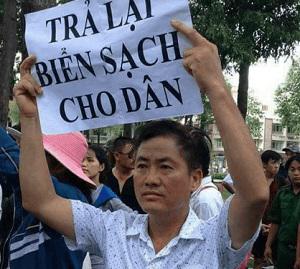
Luu Van Vinh

Luu Van Vinh
Sentenced: 15 years
Luu Van Vinh, born 1967, was convicted to 15 years in prison sentence for being affiliated with a pro-democracy group.
Luu Van Vinh frequently participated in anti-China protests and pro-environment demonstrations in Ho Chi Minh City. He attended meetings with activists to discuss human rights issues. In April 2015, police detained him for more than 12 hours after he visited the children of land rights petitioners who were serving time in prison for throwing acid at police who evicted them from their home in Long An province.
In July 2016, Luu Van Vinh announced the formation of the Vietnam National Self-Determination Coalition, an independent political group. The announcement asserted that political parties and civil society groups both inside and outside of Vietnam need to join together to provide a counterpoint to the Communist Party’s views.
Police arrested Luu Van Vinh in November 2016 and charged him under article 79 of the 1999 penal code. Doan Minh Tuan, a coalition member who later fled and sought asylum in Thailand, told a reporter at Vietnam Sydney Radio that he was visiting Luu Van Vinh that morning and witnessed the arrest. Security agents in civilian clothes burst into the house and detained them without showing any arrest warrants. During the arrest, police beat them both, and then took them to a police headquarters, which they couldn’t identify, for interrogation.
Security agents took Luu Van Vinh back to his house that afternoon and read him the arrest warrant. Doan Minh Tuan said he was detained for three days, then released and put under intrusive surveillance. During the next four months, police summoned Doan Minh Tuan and interrogated him many times, pressuring him to admit guilt and report on Luu Van Vinh. Doan Minh Tuan fled to Cambodia and then to Thailand in April 2017.
In May 2018, the United Nations Working Group on Arbitrary Detention issued an opinion that the arrest of Luu Van Vinh was arbitrary. It “considers that, taking into account all the circumstances of the case, in particular the risk of harm to Mr. Vinh’s health, the appropriate remedy would be to release Mr. Vinh immediately and accord him an enforceable right to compensation and other reparations, in accordance with international law.”
In October 2018, the People’s Court of Ho Chi Minh put him on trial and convicted him to 15 years in prison.
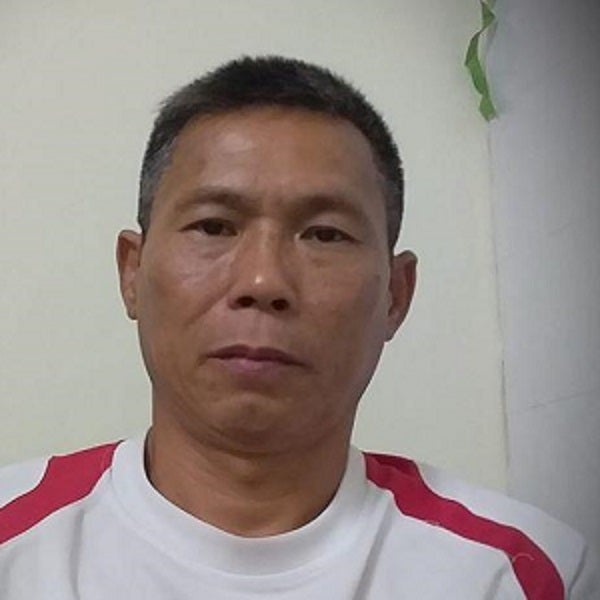
Pham Van Diep

Pham Van Diep
Sentenced: 9 years
Pham Van Diep, born 1965, is a human rights and pro-democracy blogger. He was convicted and sentenced to nine years in prison for posting his opinions on Facebook.
Pham Van Diep is a longtime human rights advocate and critic of the Vietnamese government. He has repeatedly used blogs, and later his Facebook account, to address human rights abuses. Originally from Thanh Hoa, he traveled to Russia to study in December 1992 and stayed until June 2016. He began to write and publish online opinion pieces critical of the government in 2002.
In the summer of 2011, during a trip home to Vietnam, Pham Van Diep participated in two anti-China protests in Hanoi. In 2012, he wrote an open letter to the Communist Party of Vietnam, criticizing article 4 of the Vietnam Constitution, which declares that the Communist Party is the leading force of the state and the society. He also urged the Vietnamese government to abolish former article 258 (now article 331) of the penal code and immediately release anyone imprisoned under this article. He has previously faced numerous problems traveling to and from Vietnam and has filed court cases challenging restrictions imposed on his travel – always without success.
Pham Van Diep tried to enter Vietnam twice in June 2016 and was denied entry, then tried again from Laos, where his passport was confiscated. He then staged a protest against Vietnam’s Communist Party at the Victory Monument in Vientiane, was arrested, and charged with “using the territory of the Lao People’s Democratic Republic to oppose neighboring countries.” A Laos court put him on trial in February 2018, convicted him, and sentenced him to 21 months in prison.
Pham Van Diep was released in March 2018 and taken by Laos police to the Cau Treo border crossing. Vietnamese authorities, for reasons that are not clear, allowed him to enter the country. In June 2018, he participated in a protest in Hanoi against a draft bill on special economic zones. The police detained him for several hours, during which they struck him three times in the head, he said. He filed a lawsuit against the police citing their excessive force, which a court dismissed, then petitioned the government to protest the decision.
Pham Van Diep opened a Facebook account in October 2018. He posted and shared news on social and political issues such as land confiscation, police brutality, corruption, and the protests in Hong Kong. He criticized the cyber security law and urged the government to abolish the-Party-elects-the-People voting system to move toward a free election.
The police of Thanh Hoa province arrested him in June 2019 and charged him with “making, storing, disseminating or propagandizing information, materials and products that aim to oppose the State of the Socialist Republic of Vietnam,” under article 117 of the country’s penal code. In November 2019, the People’s Court of Thanh Hoa province convicted and sentenced Pham Van Diep to 9 years in prison.
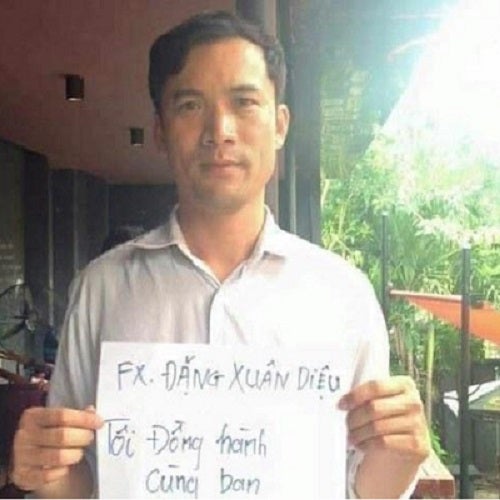
Nguyen Nang Tinh

Nguyen Nang Tinh
Sentenced: 11 years
Nguyen Nang Tinh, born 1976, is a human rights and pro-democracy activist. He was convicted and sentenced to 11 years in prison for posting his opinions on Facebook.
Nguyen Nang Tinh was a music lecturer at Nghe An province’s College of Culture and Art. On Facebook, he previously voiced support for political prisoners including Le Dinh Luong, Tran Huynh Duy Thuc, Nguyen Van Hoa, Ho Duc Hoa, Nguyen Huu Vinh (also known as Anh Ba Sam; who completed his prison term in May 2019), and now-in-exile activists Nguyen Van Dai and Dang Xuan Dieu.
He also posted an image of a protest against a new draft law on a special economic zone, and protests against Formosa Ha Tinh Steel, a Taiwanese company that dumped toxic waste into the ocean, which caused an environmental disaster off Vietnam’s central coast in April 2016. Videos on YouTube show him teaching children a song about human rights written by a former political prisoner, Vo Minh Tri (also known as Viet Khang). He has also supported the Vinh Human Development Fund, a Catholic charity, and raised money to help the poor.
Nguyen Nang Tinh has previously been the victim of violence by thugs – in May 2014 and November 2015 – most likely carried out by police in civilian clothes. At the first beating, uniformed police were present and did nothing to intervene.
Police in Nghe An province arrested Nguyen Nang Tinh in May 2019, and charged him with “making, storing, disseminating or propagandizing information, materials and products that aim to oppose the State of the Socialist Republic of Vietnam,” under article 117 of the country’s penal code. State-owned media announced the charges related to Facebook posts, many of which are critical of the government and Communist Party of Vietnam.
In November 2019, the People’s Court of Nghe An province convicted and sentenced Nguyen Nang Tinh to 11 years in prison.
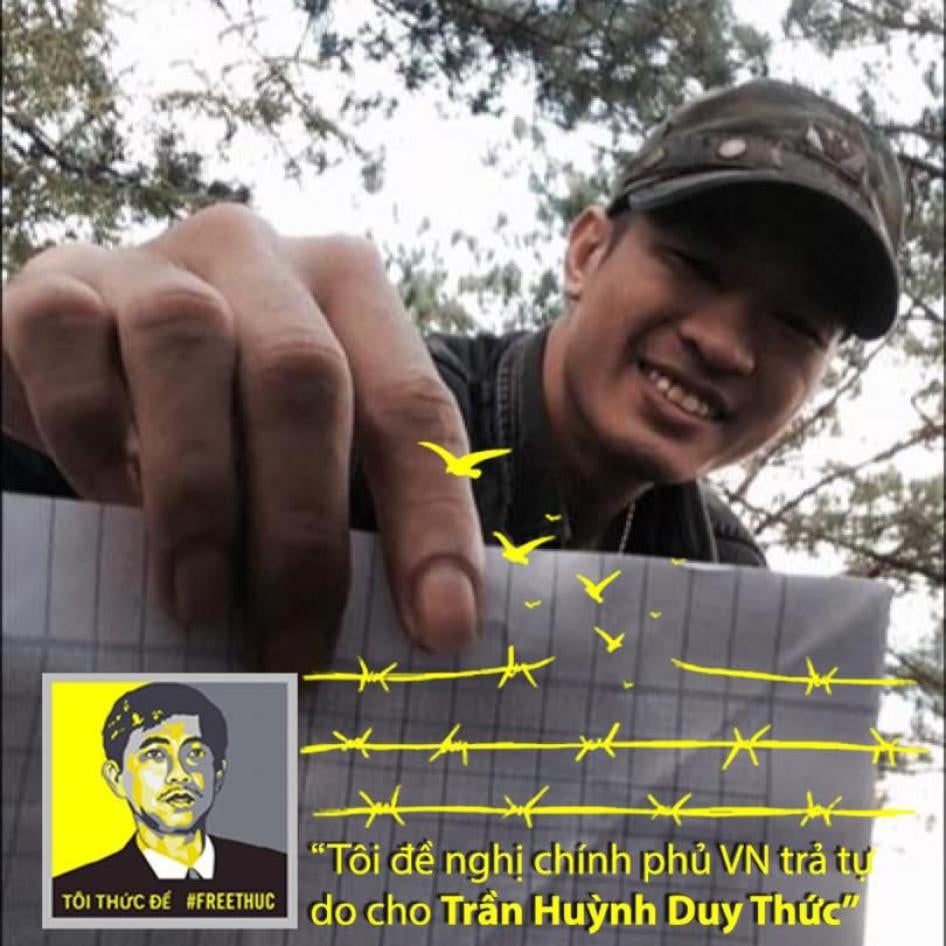
Nguyen Quoc Duc Vuong

Nguyen Quoc Duc Vuong
Sentenced: 8 years
Nguyen Quoc Duc Vuong, born 1991, is serving an eight-year prison sentence for conducting propaganda against the state.
Nguyen Quoc Duc Vuong used Facebook to express views supporting democracy in Vietnam and criticized the Communist Party of Vietnam for corruption and monopolizing power. In one of his livestreams, he said: “I am not certain that the entire state apparatus is corrupt, but I am 100 percent certain that those who have been involved in corruption are Communist Party members. Vietnam only allows one single party and does not allow any competing opposition.”
In other posts or livestreams, Nguyen Quoc Duc Vuong has shared news about protests in Hong Kong and voiced support for a change of government in Venezuela. He has also shared stories about land confiscation issues in Vietnam and raised cases of various Vietnamese political prisoners including Tran Huynh Duy Thuc, Nguyen Viet Dung, and Phan Kim Khanh.
According to an official communist party journal, in June 2018, Nguyen Quoc Duc Vuong participated in a major protest in Ho Chi Minh City against the draft law on special economic zones and the newly passed cybersecurity law. The police reportedly fined him 750,000 VND (approximately US$32).
Police in the southern province of Lam Dong arrested Nguyen Quoc Duc Vuong on September 23, 2019, and charged him with “making, storing, disseminating or propagandizing information, materials and products that aim to oppose the State of the Socialist Republic of Vietnam,” under article 117 of the country’s penal code.
After his September arrest, state media quoted police, saying: “[O]ver the last two years, Nguyen Quoc Duc Vuong has used social media to make and distribute materials, propagandize and distort, blacken and slander the regime, offend the memory of President Ho Chi Minh and oppose the State of the Socialist Republic of Vietnam.” Police officials said they had warned him not to post critical material online, but that he did not stop.
In July 2020, a court in Lam Dong province convicted and sentenced him to eight years in prison.
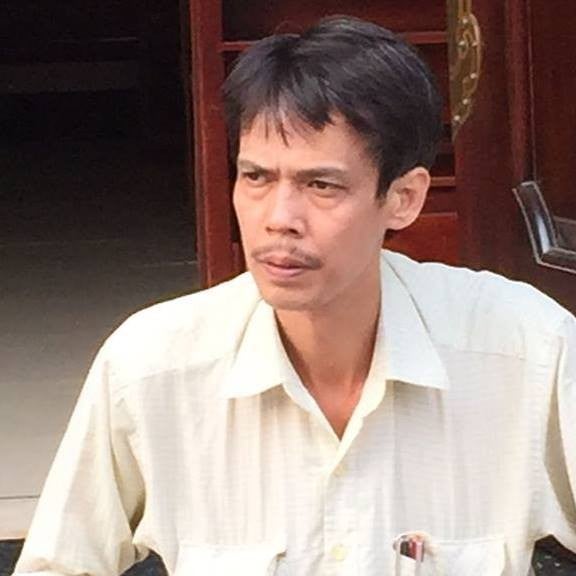
Pham Chi Dung

Pham Chi Dung
Sentenced: 15 years
Pham Chi Dung, born 1966, is serving a 15-year prison sentence for conducting propaganda against the state.
Pham Chi Dung is an independent journalist who has written on various social and political issues for years. He has campaigned for democracy, media freedom, political plurality, the rule of law, and the development of civil society. He is a founding member and president of the Independent Journalists Association of Vietnam.
He participated in anti-China and pro-environment protests, attended numerous human rights discussions, and supported fellow activists and political prisoners. Police have frequently harassed, intimidated, and detained him, and imposed house arrest and travel bans. In July 2012, the police arrested and charged him with subversion under article 79 and conducting propaganda against the state under article 88 of the penal code. After holding him for seven months, they dropped the charges and released him in February 2013.
In November 2019, he published a commentary piece on Voice of America and signed a joint letter for nongovernmental groups to urge the EU to postpone the approval of the EU-Vietnam Free Trade Agreement until Vietnam improved its abysmal rights record. Less than a week later, on November 21, police arrested him in Ho Chi Minh City and charged him with “making, storing, disseminating, or propagandizing information, materials, and products that aim to oppose the state of the Socialist Republic of Vietnam.”
In January 2021, a court in Ho Chi Minh City convicted and sentenced him to 15 years in prison.
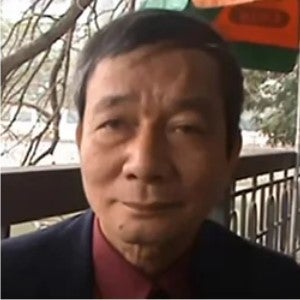
Nguyen Tuong Thuy

Nguyen Tuong Thuy
Sentenced: 11 years
Nguyen Tuong Thuy, born 1952, is serving a 11-year prison sentence for conducting propaganda against the state.
Nguyen Tuong Thuy served in the army for 22 years. He began to participate in anti-China protests in the early 2000s, and openly voiced his support for prominent dissidents such as Cu Huy Ha Vu and Le Quoc Quan, who were imprisoned for criticizing the government.
In December 2013, he and other activists founded a humanitarian group, Hoi Bau bi Tuong Than (Association of Gourd and Squash Mutual Assistance), to provide financial and spiritual support for political prisoners and land rights petitioners and their families. In April 2014, he went to the United States to testify before Congress about the lack of media freedom in Vietnam. In July 2014, he helped establish the Independent Journalists Association of Vietnam. Until his arrest in May, he served as vice president of the association. Police have previously harassed, intimidated, assaulted, and detained him, and imposed house arrest and a travel ban.
The police arrested Nguyen Tuong Thuy in Hanoi on May 23, 2020, and charged him with “making, storing, disseminating, or propagandizing information, materials, and products that aim to oppose the state of the Socialist Republic of Vietnam” under article 117 of the country’s penal code. According to his family account and a record of items confiscated by the police, Nguyen Tuong Thuy smashed his cell phone against a table instead of providing his password to the police.
In January 2021, a court in Ho Chi Minh City convicted and sentenced him to 11 years in prison.
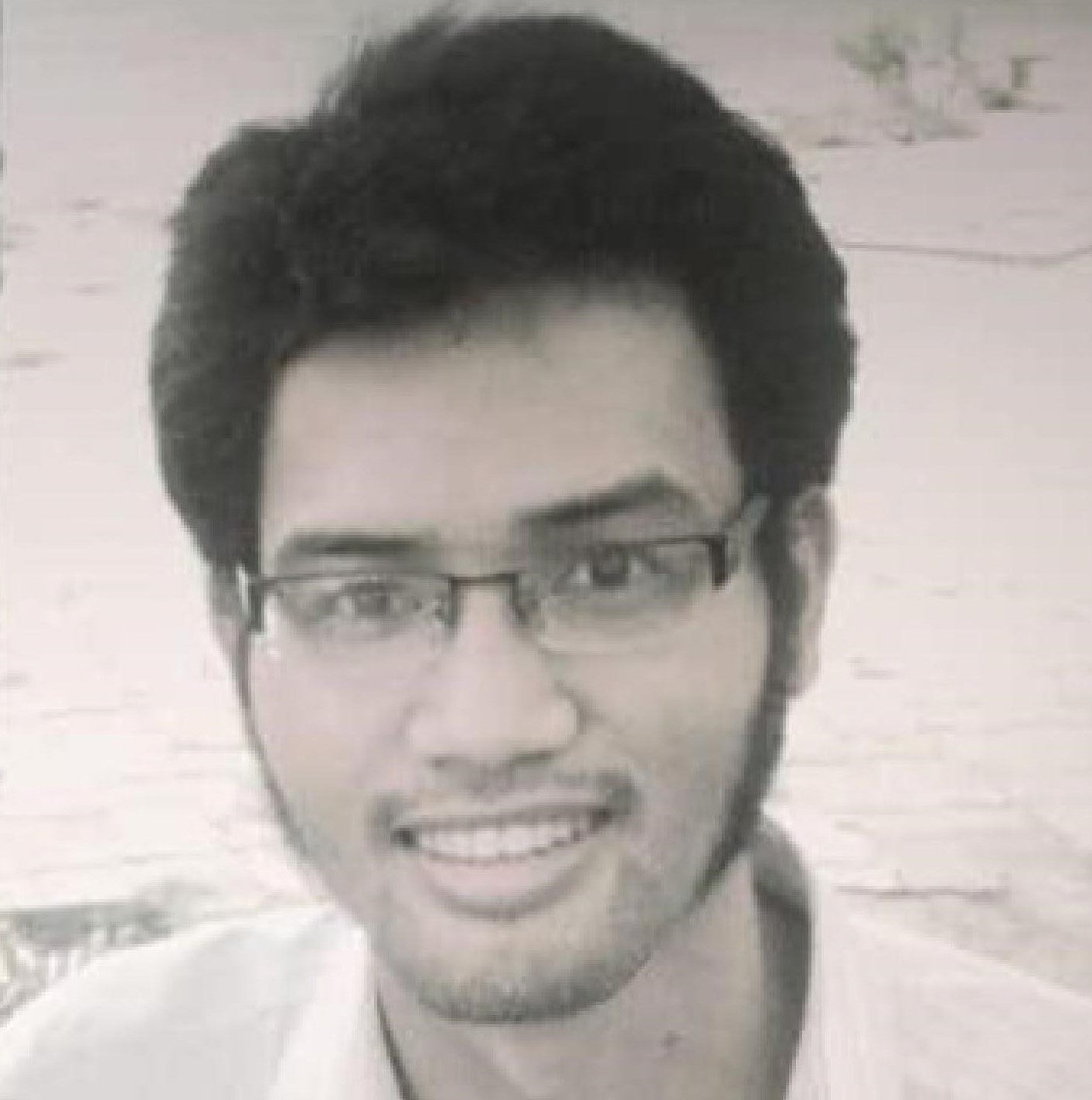
Le Huu Minh Tuan

Le Huu Minh Tuan
Sentenced: 11 years
Le Huu Minh Tuan, born 1989, is serving a 11-year prison sentence for conducting propaganda against the state.
Le Huu Minh Tuan is a graduate of Da Nang University and was a student at Hanoi Law University. He joined the Independent Journalists Association of Vietnam in August 2014. Under the pen name Le Tuan, he has written about various topics including a study of the development of civil society in Russia, Joshua Wong and the democracy protests in Hong Kong, and politics in Vietnam. He has stated that he wants “to campaign for a better society by contributing a critical voice on every front of life.”
Police arrested Le Huu Minh Tuan in Quang Nam province on June 12, 2020, and charged him with “making, storing, disseminating, or propagandizing information, materials, and products that aim to oppose the State of the Socialist Republic of Vietnam” under article 117 of the penal code.
In January 2021, a court in Ho Chi Minh City convicted and sentenced him to 11 years in prison.
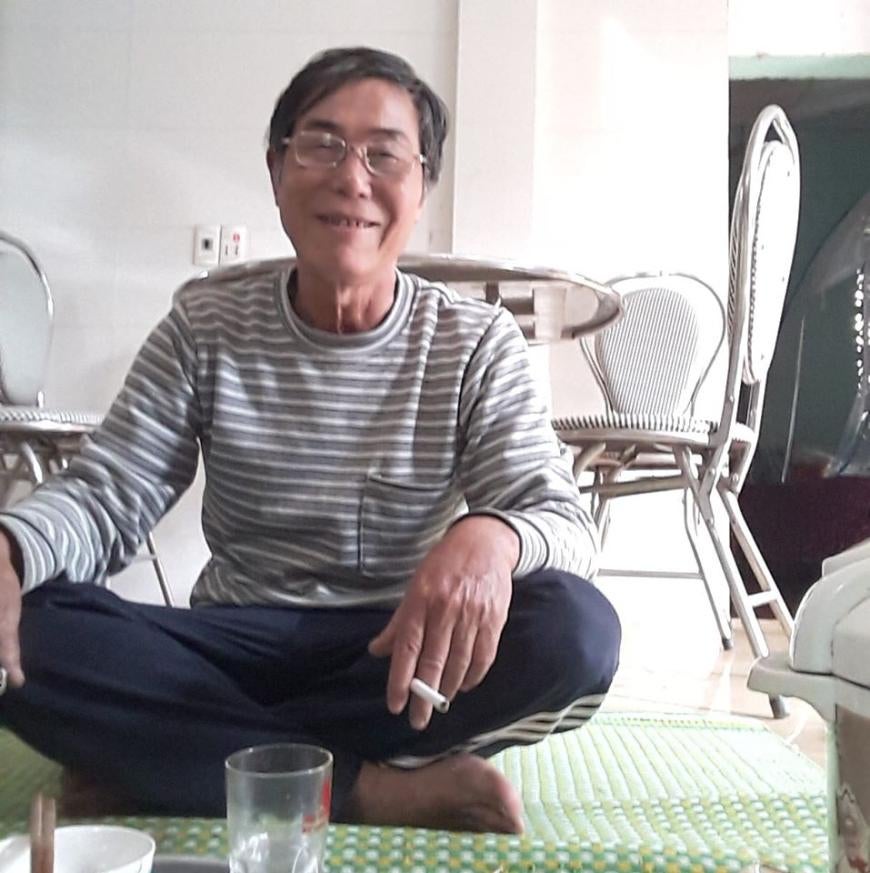
Tran Duc Thach

Tran Duc Thach
Sentenced: 12 years
Tran Duc Thach, born 1952, is serving a 12-year prison sentence for being associated with a pro-democracy group.
Tran Duc Thach has written a novel, hundreds of poems, articles, and reports that condemn corruption, injustice, and human rights abuses. A veteran of the People's Liberation Army, he is a member of the Nghe An Writers Club. His 1988 novel, Doi ban tu (Two Companions in Prison) described the arbitrary nature of Vietnam’s legal system and the inhumane conditions in Vietnamese prisons. Poems published under the title Dieu chua thay (Things Still Untold) speak about life without freedom and justice. His short memoir Ho chon nguoi am anh (A Haunting Collective Grave) retells the story of the mass killing of civilians by northern army soldiers at Tan Lap hamlet in Dong Nai province in April 1975, which he witnessed.
The authorities have repeatedly harassed him since 1975. In 1978, to protest his mistreatment, he set himself on fire and was badly burned. In 2008, he participated in anti-China protests and was arrested in September that year. He was accused of writing “many articles that distort the truth, slander, and badmouth the party and the state, and publishing them on To Quoc magazine,” a clandestine dissident bulletin. In October 2009, a court found him guilty of conducting propaganda against the state under article 88 of the penal code. He was sentenced to three years in prison.
After completing his prison term in 2011, Tran Duc Thach resumed his criticism of the Communist Party and the state. He joined the Brotherhood for Democracy in April 2013. On April 23, 2020, police arrested him in Nghe An province and charged him with “carrying out activities that aim to overthrow the people’s government” under article 109 of the penal code. Tran Duc Thach is the 10th member of Brotherhood for Democracy arrested in recent years.
In December 2020, a court in Nghe An province convicted and sentenced him to 12 years in prison.
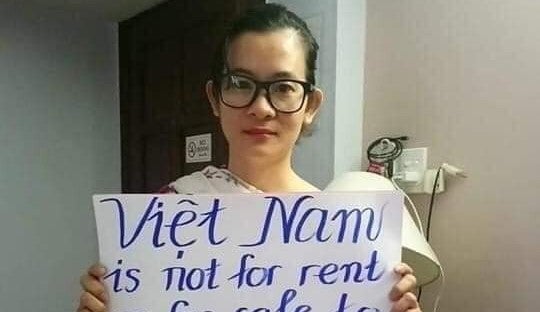
Dinh Thi Thu Thuy

Dinh Thi Thu Thuy
Sentenced: 7 years
Dinh Thi Thu Thuy, born 1982, is serving a seven-year prison sentence for conducting propaganda against the state.
Dinh Thi Thu Thuy uses Facebook to voice support for political prisoners. In June 2018, she participated in a protest against a draft law on special economic zones and the cybersecurity law. A fellow activist wrote on Facebook that she has often voiced her opinions “on social injustice and the national sovereign violated by communist China.”
Police arrested Dinh Thi Thu Thuy on April 18, 2020, in Hau Giang province and charged her with “making, storing, disseminating, or propagandizing information, materials, and products that aim to oppose the State of the Socialist Republic of Vietnam” under article 117 of the country’s penal code.
According to state media, “since 2018, Dinh Thi Thu Thuy opened many Facebook accounts to edit, post, and share hundreds of materials that propagandize, distort, and smear the honor of the leaders of the Party and State; provoking oppositional thoughts; spreading false news that cause confusion for people in order to oppose the Communist Party of Vietnam and the State of the Socialist Republic of Vietnam.”
In January 2021, a court in Hau Giang province convicted and sentenced her to seven years in prison.
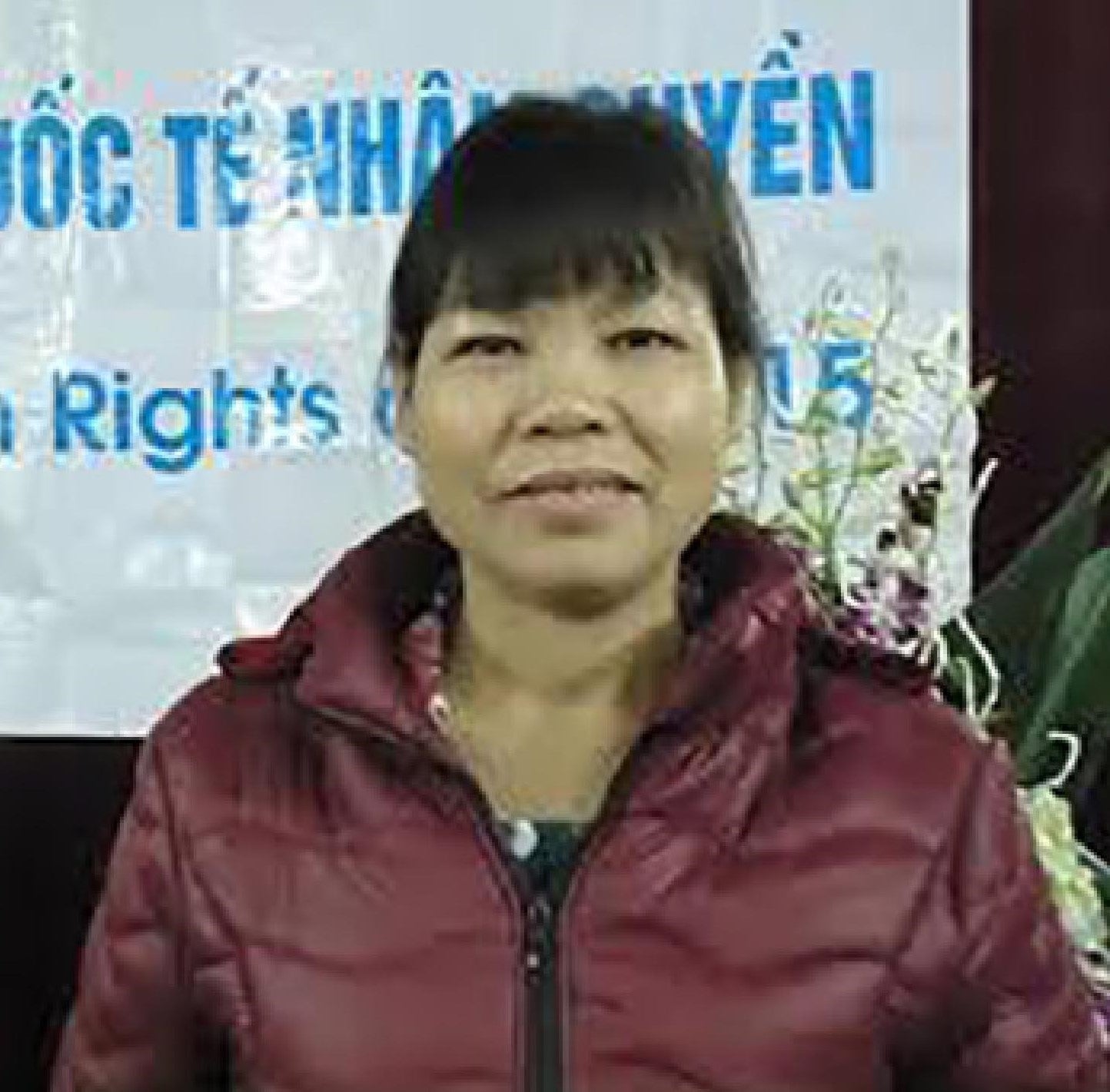
Can Thi Theu

Can Thi Theu
Sentenced: 8 years
Can Thi Theu, born 1962, is serving a eight-year prison sentence for conducting propaganda against the state.
Can Thi Theu emerged in the mid-2000s as a prominent land rights activist who fought against government confiscation of land. In April 2014, the police arrested her for filming government land confiscation and later sentenced her to 15 months in prison for “resisting against those who are on public duties,” under article 257 of the penal code. Her husband was also arrested on the same day and served 14 months in prison on similar charges.
After completing her prison term, Can Thi Theu immediately resumed her human rights advocacy work. She participated in environmental protests, and publicly voiced support for other human rights activists and political prisoners. In June 2016, police arrested her again for participating in a protest against land confiscation, and three months later, she was sentenced to 20 months in prison.
After her release in February 2018, Can Thi Theu immediately restarted her human rights advocacy. She made an impassioned speech to supporters upon her return home, stating that she had only “left a small prison and returned to the big prison.” She condemned the government’s abuses while vowing to continue to fight for human rights and said that other governments and international human rights organizations should voice support for Vietnamese human rights defenders.
In separate arrests on June 24, 2020, police in Hoa Binh province and Hanoi detained Can Thi Theu and her sons Trinh Ba Tu and Trinh Ba Phuong. The three were charged with conducting propaganda against the state under article 117 of Vietnam’s penal code.
Prior to their arrests, the three family members were instrumental in amplifying the voices of the community of Dong Tam commune, where a police raid in January 2020 resulted in the deaths of an 84-year-old farmer, Le Dinh Kinh, and three policemen. Can Thi Theu and her sons were among the authors of the “Dong Tam Report,” which shed light on the violent land clash.
In May 2021, a court in Hoa Binh province convicted and sentenced Can Thi Theu and her son Trinh Ba Tu each to eight years in prison. Upon being asked their names at the trial, both said “my name is Victim of the Communist [regime].”
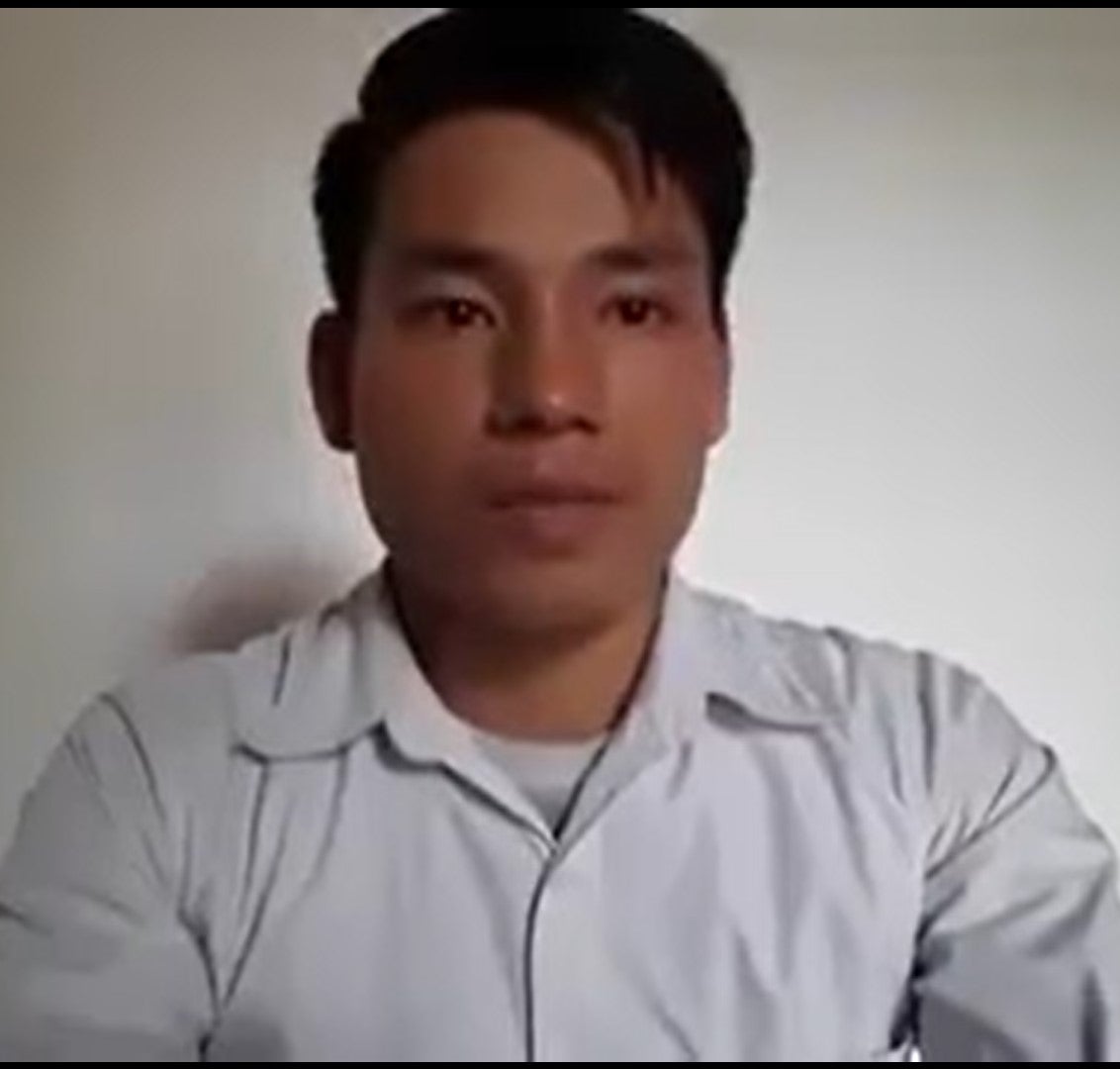
Trinh Ba Tu

Trinh Ba Tu
Sentenced: 8 years
Trinh Ba Tu, born 1989, is serving an eight-year prison sentence for conducting propaganda against the state.
Trinh Ba Tu became an activist after witnessing retaliation against his parents, land rights activists Can Thi Theu and Trinh Ba Khiem. In June 2015, when he and other activists were welcoming his father Trinh Ba Khiem as he was released from prison in Nghe An province, a group of men – most likely plainclothes police – attacked them, and Trinh Ba Tu suffered serious injuries. He has engaged in numerous protests and campaigns over human rights, land rights, and environmental protection, among other issues.
In separate arrests on June 24, 2020, police in Hoa Binh province and Hanoi detained Trinh Ba Tu, his mother Can Thi Theu, and his brother Trinh Ba Phuong. The three were charged with conducting propaganda against the state under article 117 of Vietnam’s penal code.
Prior to their arrests, the three family members were instrumental in amplifying the voices of the community of Dong Tam commune, where a police raid in January 2020 resulted in the deaths of an 84-year-old farmer, Le Dinh Kinh, and three policemen. Can Thi Theu and her sons were among the authors of the “Dong Tam Report,” which shed light on the violent land clash.
Trinh Ba Tu appears to have anticipated his arrest. On the day he was arrested, a pre-recorded video was posted on Facebook in which he expressed concern of being tortured and killed by police, and asked supporters and family members to publicly display his body if he was killed, to expose the crimes against him.
Trinh Ba Tu reportedly carried out a 20-day hunger strike in August 2020, protesting “mistreatment against him and other prisoners.”
In May 2021, a court in Hoa Binh province convicted and sentenced Trinh Ba Tu and his mother Can Thi Theu each to eight years in prison. Upon being asked their names at the trial, both said “my name is Victim of the Communist [regime].”
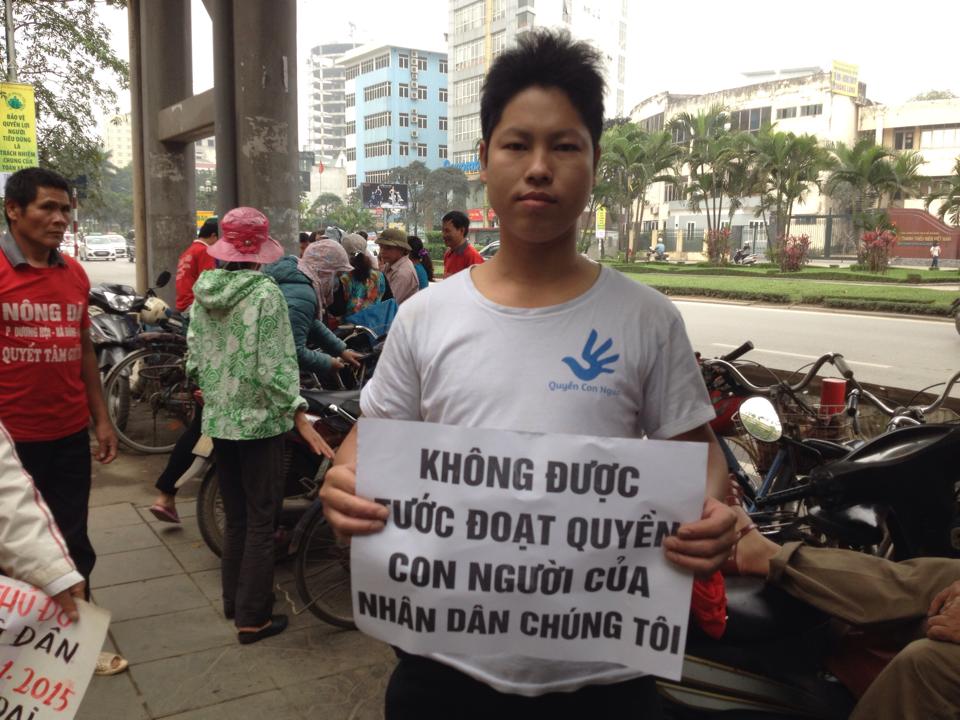
Trinh Ba Phuong

Trinh Ba Phuong
Sentenced: 10 years
Trinh Ba Phuong, born 1985, was convicted and sentenced to 10 years in prison for conducting propaganda against the state.
Trinh Ba Phuong comes from a family of land rights activists. Over the past decade, he has joined his mother, Can Thi Theu, his father, Trinh Ba Khiem, and younger brother, Trinh Ba Tu, in numerous protests and campaigns in support of human rights, land rights, and environmental protection. The authorities arrested his father in April 2014 during a government land confiscation in Duong Noi for “resisting against those who are on public duties,” under Article 257 of the Penal Code, and imprisoned him for 14 months. His mother previously served two prison terms – 15 months beginning in 2014 and 20 months in 2016.
Police arrested Trinh Ba Phuong in June 2020 for having “prepared, published and disseminated video clips and writing with distorted contents that sow confusion among the people in order to oppose the State,” in violation of Article 117 of the Penal Code.
On the same day that Trinh Ba Phuong was arrested in Hanoi, the police in Hoa Binh province also arrested his mother and brother on the same charge. Prior to their arrests, the three family members were instrumental in amplifying the voices of farmers at Hanoi’s Dong Tam commune, where a police raid in January 2020 resulted in the deaths of an 84-year-old farmer, Le Dinh Kinh, and three policemen. Trinh Ba Phuong was one of the authors of the “Dong Tam Report,” which shed light on the violent land clash.
Trinh Ba Phuong appears to have anticipated his arrest. On the day he was arrested, a pre-recorded video was posted on Facebook in which he expressed concern of being tortured and killed by police, and asked supporters and family members to publicly display his body if he was killed, to expose the crimes against him.
In December 2021, a court in Hanoi convicted and sentenced Trinh Ba Phuong to 10 years in prison.
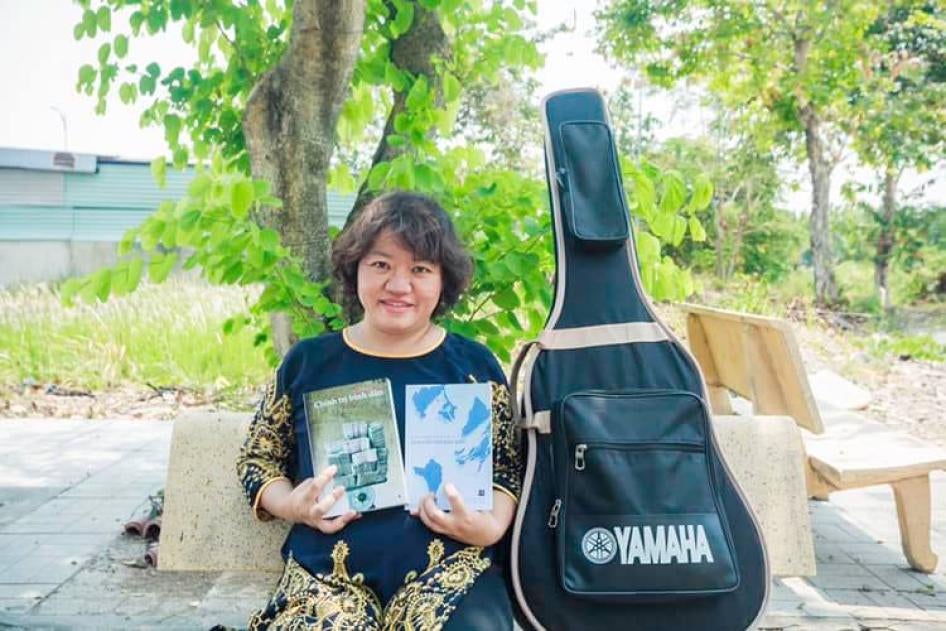
Pham Doan Trang

Pham Doan Trang
Sentenced: 9 years
Pham Doan Trang, born 1978, was sentenced to nine years in prison for conducting propaganda against the state.
Pham Doan Trang is an outspoken blogger on topics including lesbian, gay, bisexual and transgender rights, women’s rights, environmental issues, the territorial conflict between Vietnam and China, police brutality, suppression of activists, and aspects of law and human rights. She promotes election reform and human rights education. Her articles and blogs often focus on the role of media in social and political life. She frequently urges people to use social media in a responsible way that promotes a non-violent, thriving civil society movement.
Pham Doan Trang has consistently advocated for an impartial, rights-respecting justice system. She has been an editor of the online Law Magazine, which has published many articles and translations concerning lawyers and human rights, the struggle against forced confessions, state use of corporal punishment, domestic violence, legal reforms in China, high-profile death sentence cases in Vietnam, protections against self-incrimination, and many other topics.
Pham Doan Trang has written about international issues such as the democracy movement in Hong Kong, for which she provided a timeline of events and key issues for Vietnamese readers who cannot read other languages, and the human rights crisis in Crimea. In both instances, she also translated English language articles about these subjects into Vietnamese, which others distributed in Vietnam.
Pham Doan Trang’s work seeks to bring international attention to Vietnam’s abysmal human rights record. Her blog includes English translations of her writings in Vietnamese, including calls for the release of political prisoners. She is also the co-editor for the English website Vietnam Right Now, which aims to distribute “objective, accurate, and timely information on the current social and political conditions in Vietnam today.”
In February 2019, Pham Doan Trang co-founded the Liberal Publishing House, which publishes a range of non-fiction books written by Vietnamese authors on topics such as political science, public policy, and other social issues, such as Politics of a Police State, Non-Violent Resistance, Politics for the Common People, Life Behind Iron Bars, and A Handbook for Families of Prisoners. The government considers these books sensitive and has effectively banned their publication.
Pham Doan Trang has long been involved in peaceful protests against government policies. She has joined demonstrations outside police stations and at airports when fellow activists have been detained, participated in anti-China protests, and helped lead pro-environmental marches. She exhibited solidarity for fellow activists by trying to attend government show trials, and, at great personal risk, she periodically visited families of imprisoned dissidents to provide them with support and assistance.
Government security forces frequently persecuted, harassed, and physically assaulted her. She walks with a pronounced limp from an injury when security forces forcibly broke up an environmental protest in Hanoi in April 2015.
In May 2016, police detained and prevented her from attending a meeting with US President Barrack Obama, who had invited her to join a gathering of activists during his visit to Hanoi. In November 2017, she was detained after meeting with a European Union delegation that was preparing for the annual bilateral human rights dialogue between the EU and Vietnam.
Police arrested Pham Doan Trang on October 6, 2020 in Ho Chi Minh City. She was charged for “conducting propaganda against the State of the Socialist Republic of Vietnam” under Article 88 of the 1999 Penal Code.
In December 2021, a court in Hanoi convicted and sentenced her to nine years in prison.
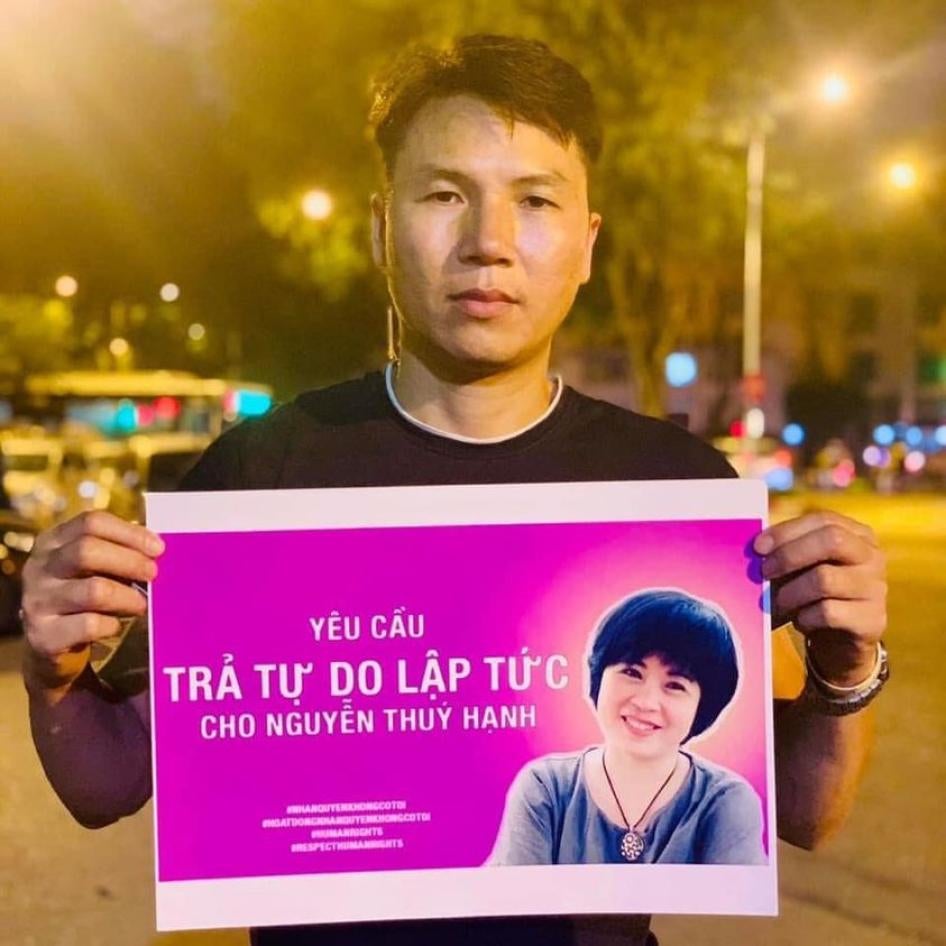
Do Nam Trung

Do Nam Trung
Sentenced: 10 years
Do Nam Trung, born 1981, is serving a 10-year prison sentence for conducting propaganda against the state.
Do Nam Trung previously spent 14 months in prison after he publicly advocated for democracy and human rights in the early 2010s.
In May 2014 police arrested Do Nam Trung and his friends in Dong Nai province as they were taking photos and filming anti-China protests. The authorities charged them under what was then Article 258 of the Penal Code. They specifically were accused of “abusing the rights to freedom and democracy including freedom of speech and assembly … to petition and denounce … to use internet … to collect images and [information about] land petitions and big gatherings, to slander and publish wrong information on their personal Facebook … to harm the reputation and weaken the confidence of the people for the Party and the State of Vietnam.” After completing his 14 month prison sentence, Do Nam Trung told Radio Free Asia that prison only made him stronger and more confident.
Between 2015 and 2021, Do Nam Trung participated in pro-environment protests and anti-China protests, and opposed government corruption. In addition to joining protests critical of the government, Do Nam Trung joined humanitarian groups providing help to victims of natural disasters, and publicly supported other activists including Nguyen Van Dai, Le Thu Ha, Nguyen Huu Vinh, Can Thi Theu, Pham Doan Trang, and Nguyen Thuy Hanh.
In the indictment dated October 26, the police wrote that “Do Nam Trung did not acknowledge that he committed any crime, and did not write nor sign any documents.”
Police arrested Do Nam Trung on July 6, 2021, and charged him with propaganda against the state under Article 117 of the penal code. In December 2021, a court in Nam Dinh sentenced Do Nam Trung to 10 years in prison.
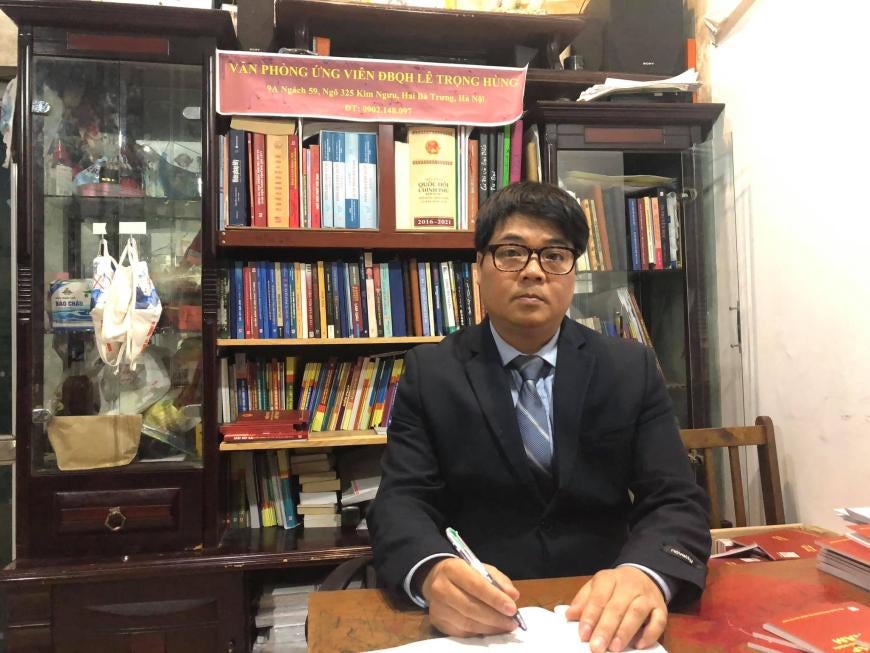
Le Trong Hung

Le Trong Hung
Sentenced: 5 years
Le Trong Hung, born 1979, was sentenced to five years in prison for conducting propaganda against the state.
Le Trong Hung (also known as Hung Gan) is a former government middle school teacher. In 2015, after filing a petition without success demanding reform to benefit students in a school in Hanoi, he quit teaching. In 2017 he began reporting as a citizen journalist on Facebook and YouTube, commenting on social issues and advising people petitioning the government.
He participated in anti-China protests and protests for environmental conservation. He used social media to share news about protests in Myanmar and the struggles of Vietnamese activists such as Trinh Ba Phuong, Trinh Ba Tu, and Pham Doan Trang. He also promoted education and knowledge about Vietnam’s Constitution, and offered people free copies of the constitution.
In February 2021, Le Trong Hung announced his plan to run as an independent candidate for the National Assembly election. He published his proposed policies, promising that, if elected, he would promote education about constitutional rights and campaign for laws to allow peaceful protests, freedom of association, and a citizens’ watchdog role over government. His policy agenda also included a call to amend the constitution and repeal articles granting supremacy to the Communist Party of Vietnam (article 4), allowing only a single trade union (article 10), and confirming state ownership of all land, water, and natural resources (article 53), among others.
On February 23, 2021, Le Trong Hung challenged Communist Party General Secretary Nguyen Phu Trong to a debate on television, since Nguyen Phu Trong was running as the parliamentary candidate in the residential area where Le Trong Hung lives. One week later, police began to summon him repeatedly for questioning and placed him under intrusive surveillance.
Police arrested Le Trong Hung on March 27, 2021, and charged him with conducting propaganda against the state in violation of article 117 of the Vietnamese Penal Code. Following his arrest, the Communist Party of Vietnam’s website ran an article accusing Le Trong Hung of “using social media to publish writing or livestream the distortion and disparagement of the government.” It chides him for “commenting in a distorted way the guidelines, paths and policies of the Party and the State.” The party’s post claimed that Le Trong Hung “continuously makes speeches that defame the government, oppose the State and dismiss the leadership role of the Party.” The article dismisses as “reactionary” comments that Le Trong Hung was arrested because he ran as an independent candidate and said that the authorities arrested him because he had been violating the law for a long time.
In December 2021, a court in Hanoi convicted and sentenced Le Trong Hung to five years in prison.
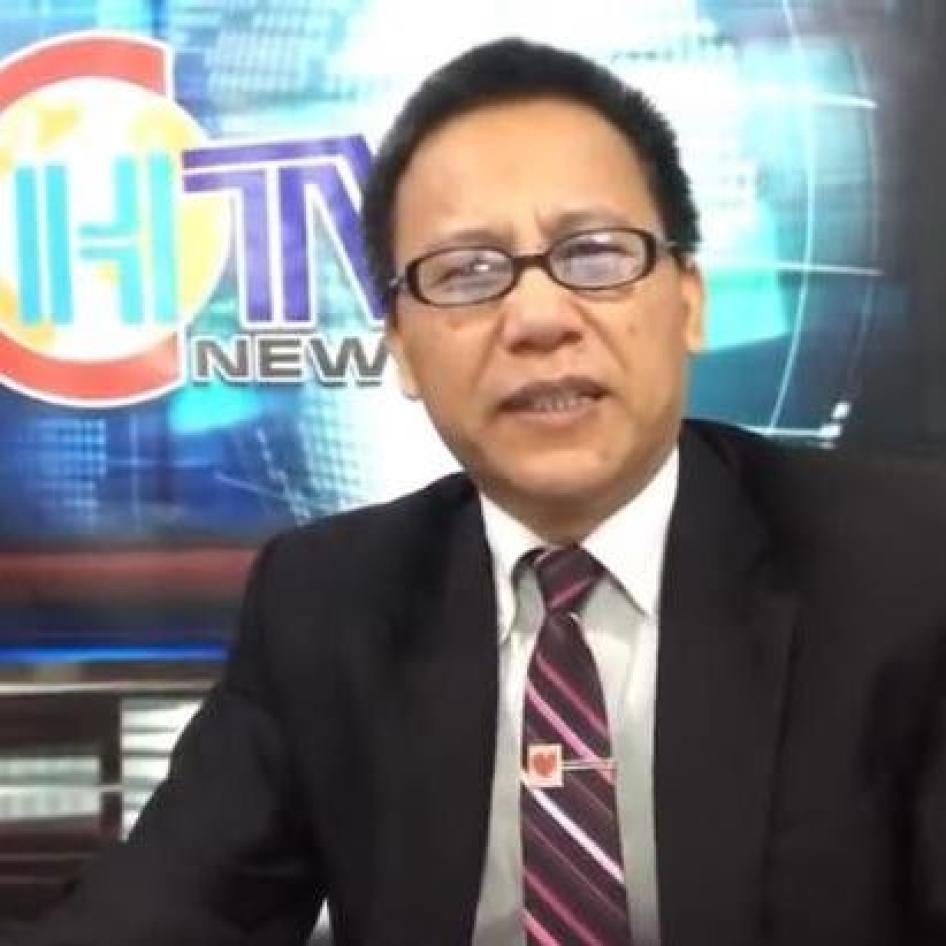
Le Van Dung

Le Van Dung
Sentenced: 5 years
Le Van Dung, born 1970, was sentenced to five years in prison for conducting propaganda against the state.
Le Van Dung, also known as Le Dung Vova, is a construction engineer who has participated in many protests since 2011, including demanding environmental action and criticizing China. After witnessing government crackdowns against peaceful protesters, he began to take part in pro-democracy activism and human rights advocacy.
He traveled to sites of forced land confiscation to film the local authorities’ violence against farmers, such as at Vu Ban district, Nam Dinh province in May 2012. He joined other activists to independently investigate the massive die-off of marine creatures along the central coast of Vietnam in April 2016 caused by Formosa Ha Tinh Steel, a company owned by Taiwan’s Formosa Plastics Group, which dumped toxic waste into the sea. Le Van Dung has also participated in campaigns to provide assistance to victims of natural disasters in Vietnam.
In 2017, Le Van Dung and his fellow activists created a YouTube channel called Chan Hung TV (To reinvigorate [the country]). They used this channel, as well as the livestream function on Facebook, to comment on various social and political issues. They also interviewed and provided advice to farmers facing land confiscation and people who suffered government persecution or injustice, such as the mother of a death-row inmate, Ho Duy Hai. Members of Chan Hung TV also provided information about basic rights and law to their viewers, and distributed free copies of Vietnam’s Constitution.
In February 2021, Le Van Dung attempted to run as an independent candidate for the national assembly in the May 2021 elections, but local authorities arranged to have him disqualified. On May 25, two days after the elections, police went to Le Van Dung’s house in Hanoi to arrest him, but he had gone into hiding. On May 28, police issued an arrest warrant for him. In response, he wrote on his Facebook page: “If I am imprisoned for speaking my conscience, I would still speak up. Even when I know that speaking the truth would bring loss to myself and my family, including my wife and my children. We will face discrimination resulting from our differences in awareness.”
Police arrested him on June 30, 2021, at a relative’s house in Hanoi and charged him with propaganda against the state. In March 2022, a court in Hanoi convicted and sentenced him to five years in prison.
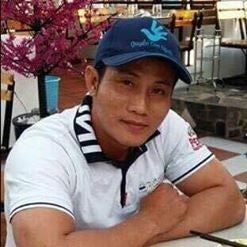
Nguyen Van Duc Do

Nguyen Van Duc Do
Sentenced: 11 years
Nguyen Van Duc Do, born 1975, is serving an 11-year prison sentence for being associated with a pro-democracy group.
Nguyen Van Duc Do is a mechanic who participated in human rights-related events and pro-environment protests. He also joined labor rights activists to campaign for workers’ interests.
Police arrested Nguyen Van Duc Do in November 2016 for his alleged affiliation with the Vietnam National Coalition, an independent political group. Police charged him under article 79 of the 1999 penal code with “carrying out activities that aim to overthrow the people’s administration.”
An anonymous family member told a reporter at Cali Today News that upon arrest, Nguyen Van Duc Do “demanded to know the reason for his arrest and to allow the people to witness the arrest warrant being read, but the police did not accept his request. They restrained Do and beat him. They beat Do so much that blood spilled out from his eyes, nose, and ears.”
In October 2018, a court in Ho Chi Minh City sentenced Nguyen Van Duc Do to 11 years in prison.

Bui Van Thuan

Bui Van Thuan
Sentenced: 8 years
Bui Van Thuan, born 1981, is serving an eight-year prison sentence for criticizing the Communist Party and State of Vietnam.
Bui Van Thuan is a member of the Muong ethnic group in Hoa Binh province. His political interest began when he was a student at the Hanoi National University of Education in the late 2000s. After graduating, he taught at private schools in Hanoi.
While working as a teacher, Bui Van Thuan participated in protests, including those against China as well as the environmental disaster caused by the Formosa Ha Tinh Steel dumping of toxic waste at sea in 2016. Bui Van Thuan voiced support for fellow activists and political prisoners, including Nguyen Trung Ton, Trinh Ba Tu, and Can Thi Theu. He publicly boycotted the national elections in 2016 and 2021.
On his Facebook page, Bui Van Thuan regularly criticized the government about various political issues, including official pressure by authorities to compel people to vote in national elections. He also frequently criticized the government’s handling of the Covid-19 pandemic.
On August 16, 2021, Bui Van Thuan criticized the government’s call for financial donations from people to help it fight the pandemic. He wrote, “The Communist Party of Vietnam and its tentacle associations and organizations is a giant nest of parasites. They live parasitically from the sweat and work of the people, and they have absolutely no effect except for pulling the country back away from development and civilization.”
In the indictment, the authorities alleged that this post was criminal because it makes a “baseless argument that insults the reputation and leading role of the Communist Party of Vietnam and organizations, sowing doubts among the people.”
Police arrested him on August 31, 2021, and charged him under penal code article 117(1) with “making, storing, disseminating or propagandizing information, materials and products that aim to oppose the State of the Socialist Republic of Vietnam.”
In November 2022, a court in Thanh Hoa province convicted Bui Van Thuan and sentenced him to eight years in prison.

Duong Van Thai

Duong Van Thai
Sentenced: 12 years
Duong Van Thai, born 1982, is a democracy campaigner who is serving a 12-year prison sentence for criticizing the government.
Duong Van Thai campaigned for democracy and human rights in Vietnam and participated in protests relating to environmental rights. Vietnamese government-controlled media have accused him of association with outlawed “reactionary” groups including the Brotherhood for Democracy, and the Independent Journalists Association of Vietnam.
Duong Van Thai fled Vietnam in 2019 and was registered in Thailand as a refugee by the United Nations Refugee Agency (UNHCR). While he was awaiting resettlement to a third country, in April 2023, unidentified men abducted him in Bangkok and forcibly took him back to Vietnam, where he was charged with issuing propaganda against the state under article 117 of the penal code.
Between February 2019 and his abduction in April 2023, Duong Van Thai posted material on Facebook and YouTube on the political situation in Vietnam.
In October 2024, Duong Van Thai was put on a closed trial that lasted a few hours, along with several other defendants who were reportedly state employees who provided him information. The court convicted him and sentenced him to twelve years in prison, plus three years’ probation. The others received between thirty months and five-and-a-half years in prison.
Huy Duc
Huy Duc
Sentenced: 2 years and 6 months
Huy Duc (born 1962) is a prominent journalist who is serving a 30-month prison sentence for criticizing the government.
Huy Duc (the pen name of Truong Huy San) was born in Ha Tinh province in north-central Vietnam. He joined the military at age 18 and served in Vietnamese-occupied Cambodia during the mid-1980s. In 1988, during a rare reformist moment in postwar Vietnam when the Communist Party media were undergoing an unprecedented liberalization, he joined the staff of Youth Newspaper (Bao Tuoi Tre) in Ho Chi Minh City, where he earned a reputation as a dogged reporter covering the country’s politics. Years later, when writing for the newspaper Saigon Marketing (Sai Gon Tiep Thi), Huy Duc broke a major corruption scandal involving sweetheart deals and shady land purchases by members of the prime minister’s family.
As his journalistic efforts started to attract international attention, Huy Duc received a Hubert H. Humphrey Fellowship to study at the University of Maryland. Returning to Vietnam in 2006, Huy Duc founded a popular blog where he continued to publish editorial commentary on pressing social and political issues. The Vietnamese authorities shut down the blog in 2010. In 2012, Huy Duc spent a year at Harvard University on a Nieman Fellowship, during which he wrote his most influential work, a journalistic account of Vietnam’s postwar era titled The Winning Side (Ben Thang Cuoc), widely considered the most important nonfiction book about postwar Vietnamese history and politics. It has never been sold publicly inside Vietnam.
Since 2020, Huy Duc has continued to write about a range of Vietnam’s social and political problems, including environmental issues like deforestation. With more than 350,000 Facebook followers, Huy Duc remains one of the most influential Vietnamese political commentators on the platform.
Police arrested Huy Duc in June 2024 and charged him with “abusing the rights to democracy and freedom to infringe upon the interests of the state” under article 331 of the penal code, an overly broad law that the authorities frequently use against critics of the government.
His Facebook entry prior to his arrest warned about the myriad dangers posed by the concentration of power in Vietnam’s notoriously repressive Ministry of Public Security. Another Facebook post criticized the shortcomings of an official anti-corruption campaign led by Communist Party leadership. On the day Huy Duc was arrested, his Facebook page was taken down and is no longer accessible on the internet.
In a 2013 interview, Huy Duc said, “no free man would ever choose prison. But, in some cases, to defend a right to freedom, prison cannot be avoided. If everybody avoids prison, we will never achieve freedom.”
In February 2025, a court in Hanoi convicted and sentenced Huy Duc to two years and six months in prison.

Nguyen Chi Tuyen

Nguyen Chi Tuyen
Sentenced: 5 years
Nguyen Chi Tuyen (born 1974) is a democracy activist who is serving a five-year prison sentence for criticizing the government.
Nguyen Chi Tuyen (also known as Anh Chi), 50, is a rights campaigner who uses YouTube, Facebook, and other social media to comment on social and political issues. His primary YouTube channel, Anh Chi Rau Den, has produced over 1,600 videos and has 98,000 subscribers. His second YouTube channel, AC Media, has produced more than 1,000 videos and has almost 60,000 subscribers.
Nguyen Chi Tuyen was a founding member of the now closed No-U FC (No U-line Football Club), a soccer team whose members were outspoken against China’s territorial claims on maritime areas claimed by Vietnam. He helped organize and participated in many anti-China protests in the early 2010s, and pro-environmental protests in the mid-2010s. He joined fellow activists to provide humanitarian assistance to impoverished people in rural areas and victims of natural disasters.
He also openly supported imprisoned rights activists including Pham Doan Trang, Can Thi Theu, Nguyen Tuong Thuy, Nguyen Huu Vinh (also known as Ba Sam), and Nguyen Lan Thang. Prior to Nguyen Lan Thang’s trial, Nguyen Chi Tuyen published an open letter in support of his friend. He wrote, “The only thing we did was to act in accordance with our conscience, speak up our thoughts, our desire, our longing.”
Nguyen Chi Tuyen has repeatedly faced police intimidation, harassment, house arrest, bans on international travel, arbitrary detention, and interrogations. In May 2015, five unidentified men attacked and beat him near his house in Hanoi. The attack left him with injuries that required stitches on his face.
Despite the risk of prosecution on politically motivated charges, Nguyen Chi Tuyen continued his campaign for human rights and democracy. In a 2017 interview in Mekong Review, he said, “[Communist Party officials] have all the power in their hands. They have prisons, they have guns, policemen, army force, the court: they have everything. They have media. We have nothing except our hearts, and our minds. And we think it’s the right thing to do … that’s all.”
Police arrested Nguyen Chi Tuyen in February 2024 and charged him under article 117 of the penal code, which criminalizes “making, storing, disseminating, or propagandizing information, materials and products that aim to oppose the State.” In August 2024, a court in Hanoi convicted and sentenced him to five years in prison.
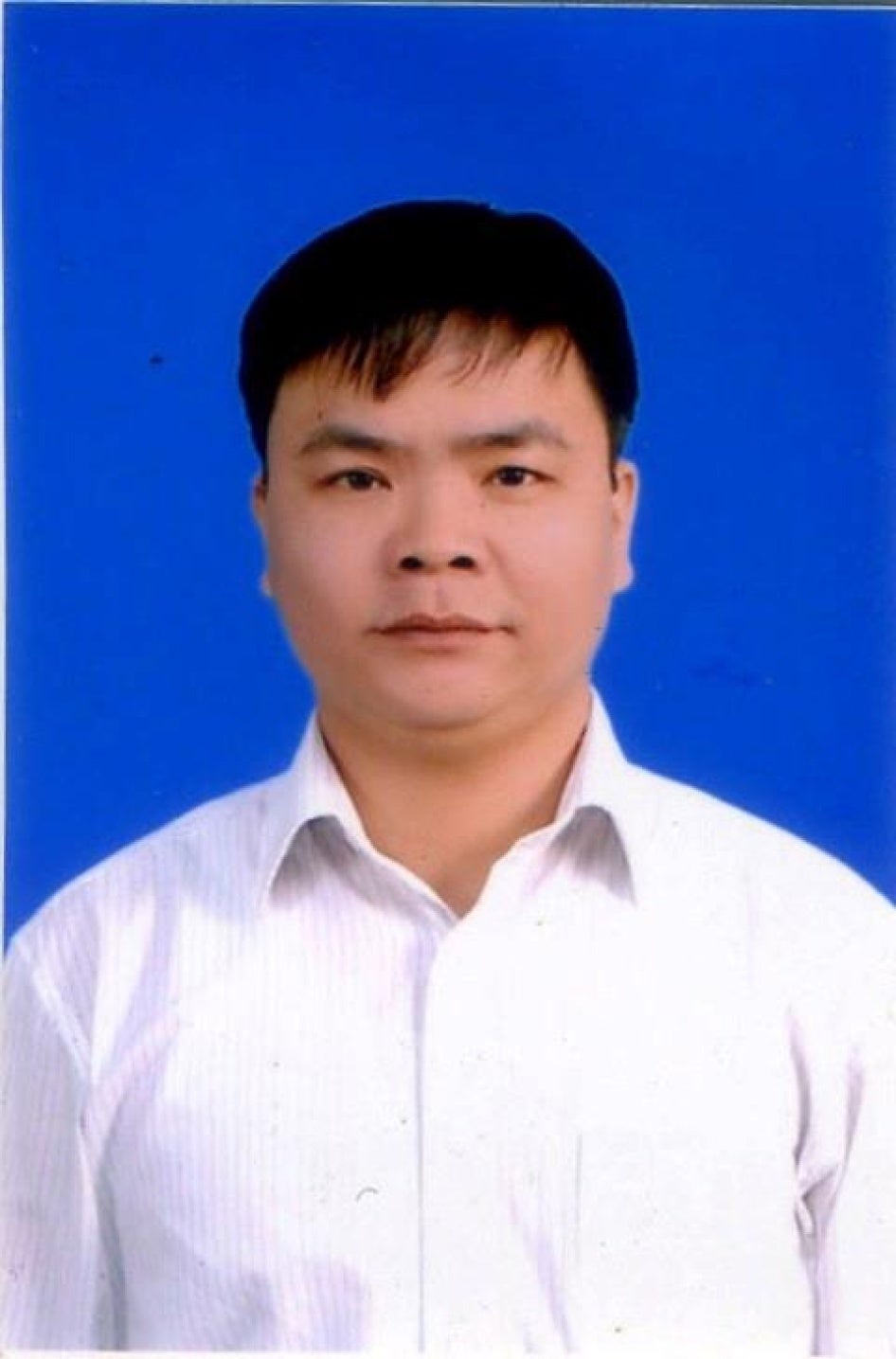
Nguyen Vu Binh

Nguyen Vu Binh
Sentenced: 7 years
Nguyen Vu Binh (born 1968) is a democracy journalist who is serving a seven-year prison sentence for criticizing the government.
Nguyen Vu Binh worked as a journalist at the official Communist Party of Vietnam’s journal, Communist Review (Tap Chi Cong San), for almost 10 years. In December 2000, he resigned and attempted to form an independent political party. He was also one of several dissidents who attempted to form an anti-corruption association in 2001.
Police arrested him in September 2002, alleging that he had slandered the Vietnamese state in written testimony he provided to the United States Congress in July 2002 on human rights abuses in Vietnam. The government also targeted him for his criticism of a controversial border treaty with China in an article distributed online in August 2002.
In his US congressional testimony, Nguyen Vu Binh wrote, “I always believe that when we can successfully stop and prevent human rights violations across the country we have also succeeded in democratizing this nation. Any measures to fight for human rights, therefore, should also aim for the ultimate goals aspired to for so long by the Vietnamese people: individual liberty and a democratic society.”
In December 2003, a court sentenced Nguyen Vu Binh to seven years in prison, followed by three years of house arrest, for espionage under article 80 of Vietnam’s criminal law. In June 2007, two years and three months early, the authorities released him. He immediately resumed his human rights advocacy, frequently commenting on social and political issues in Vietnam.
Between 2015 and 2024, Nguyen Vu Binh published more than 300 entries on the Radio Free Asia Blog. He has written about corruption, land rights, police brutality, unfair trials, the right to peaceful protest, economics, education, the environment, and the relationships between Vietnam and China and China and the US. He has written to support imprisoned fellow activists, including Le Anh Hung, Nguyen Thuy Hanh, and members of Brotherhood for Democracy. But most of all, Nguyen Vu Binh has written to promote genuine democracy and rule of law in Vietnam.
In his latest entry, “Positive Aspects of the Democratic Movement During a Difficult and Gloomy Period,” published a week before his arrest, he said that human rights and democracy advocates in Vietnam should support one another and the families of fellow activists amid the ongoing government crackdown.
Nguyen Vu Binh twice received the prestigious Hellmann/Hammett writers’ award for victims of political persecution, in 2002 and 2007.
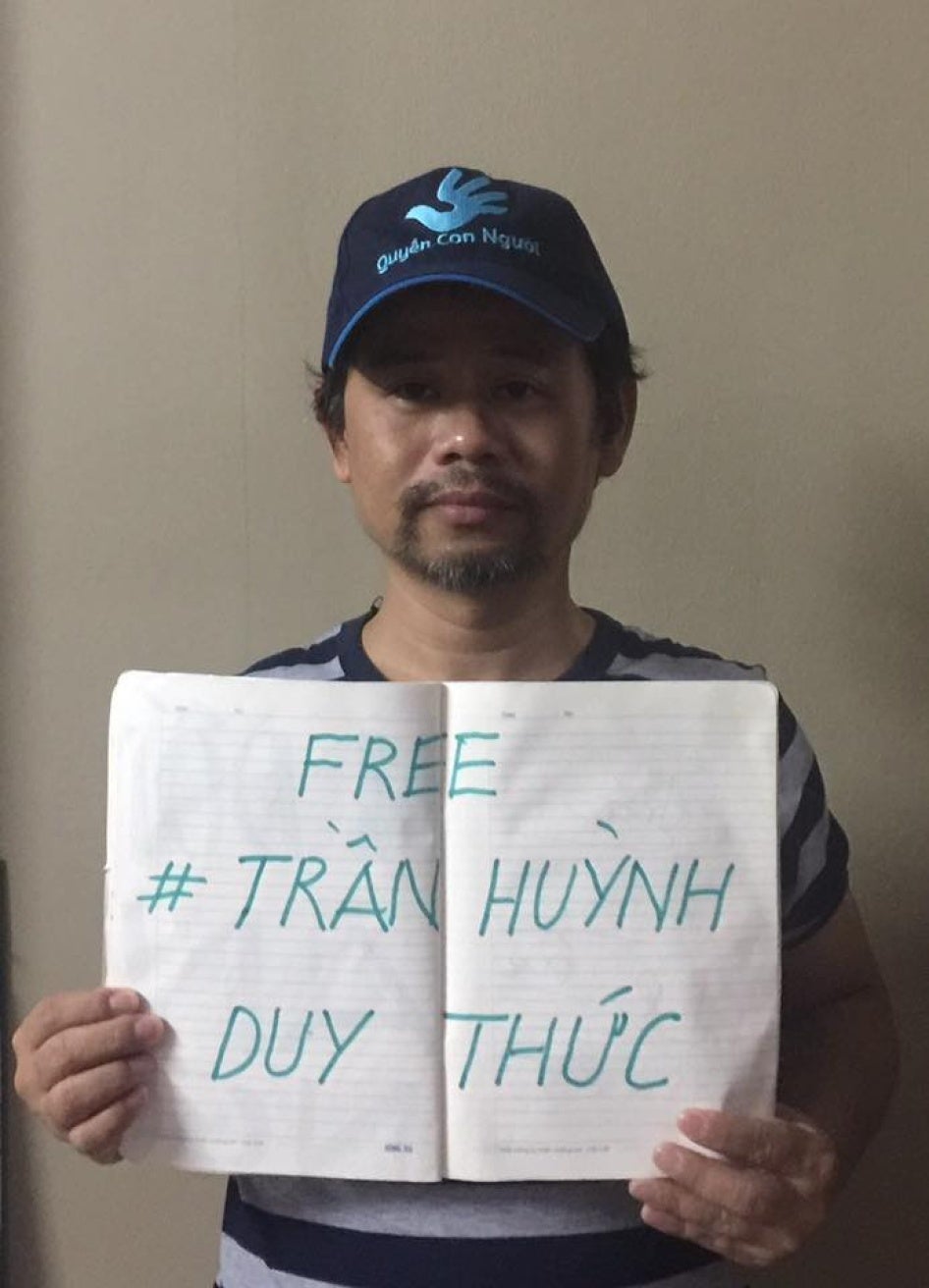
Phan Van Bach

Phan Van Bach
Sentenced: 5 years
Phan Van Bach (born 1975) is a democracy activist who is serving a five-year prison sentence for criticizing the government.
Phan Van Bach has been campaigning for basic civil and political rights in Vietnam for more than a decade. He has participated in public demonstrations against Vietnam’s repressive Law on Cybersecurity. He joined protests against Formosa Ha Tinh Steel, a Taiwanese company that discharged toxic waste off the coast of Ha Tinh province, killing millions of fish and destroying the livelihoods of fishing communities in April 2016.
Phan Van Bach has also publicly voiced support for fellow activists including prominent rights campaigners Tran Huynh Duy Thuc, Nguyen Tuong Thuy, Pham Chi Thanh, Le Van Dung, Le Trong Hung, Can Thi Theu, and Hoang Duc Binh.
In March 2016, Phan Van Bach tried to run for the National Assembly as an independent candidate, but his self-nomination was nullified in the first round. Even self-nominated candidates have to be approved by the ruling Communist Party of Vietnam. In May 2021, he boycotted the election on the grounds it would not be free and fair.
From 2017 to 2018, Phan Van Bach participated in a YouTube channel called Chan Hung TV (“to reinvigorate [the country]”). A group of activists including Le Van Dung, Le Trong Hung, and others ran the channel as well as the livestream function on Facebook to comment on social and political issues. They interviewed and provided advice to farmers who were facing confiscation of their land, and to people who had experienced other forms of government persecution or injustice, including the mother of a death-row inmate, Ho Duy Hai. Presenters like Phan Van Bach also provided information about basic rights and law to their viewers, and distributed free copies of Vietnam’s constitution. In July 2018, on behalf of Chan Hung TV, Phan Van Bach went to Lam Dong province to visit a fellow activist, Dinh Van Hai, who had been assaulted after visiting another former political prisoner. Dinh Van Hai is serving a five-year prison sentence for criticizing the government.
Because of his activism, the police have harassed, intimidated, detained, and interrogated Phan Van Bach numerous times. He was arrested in December 2023 and charged under article 117 of the penal code, which prohibits distributing “anti-state propaganda.” In a September 2024 interview with Radio Free Asia, Phan Van Bach’s wife expressed serious concern about his health in detention, saying that during a short visit in June 2024, she “hardly recognized” her husband, who had lost almost 25 kilograms since his arrest. In September 2024, a court in Hanoi convicted and sentenced him to five years in prison.
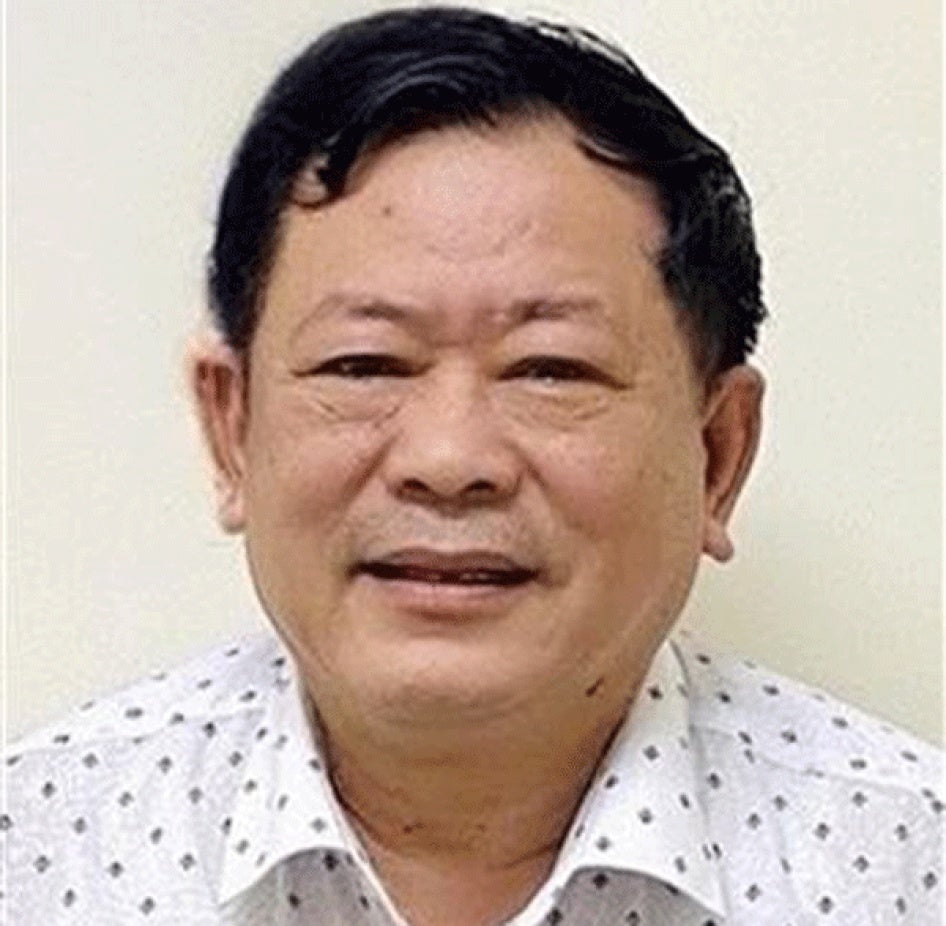
Tran Dinh Trien

Tran Dinh Trien
Sentenced: 3 years
Tran Dinh Trien (born 1959) is a high-profile lawyer who was convicted and sentenced to three years in prison for criticizing a government official.
Tran Dinh Trien heads the Vi Dan (“For the People”) Law Firm, which he founded in 2006. He was also the deputy chair of the Hanoi Bar Association from 2013-2018. In 2011, he participated in the defense team for activist Cu Huy Ha Vu, and joined fellow lawyers to walk out of the court during the trial in protest against unfair treatment of the defense team. In 2013, he represented one of the defendants in a famous case of armed resistance against land confiscation.
Police arrested Tran Dinh Trien in June 2024, and charged him with “infringing upon the interests of the state” under Article 331 of Vietnam’s penal code.
According to the indictment, between April 23 and May 9, 2024, Tran Dinh Trien published three posts on Facebook criticizing actions by then Chief Justice Nguyen Hoa Binh of the Supreme People’s Court of Vietnam. The court issued a statement that these posts “had untruthful and fabricated contents that aimed to seriously offend the dignity, honor and prestige of Chief Justice Nguyen Hoa Binh … and seriously affect the prestige of the People’s Court system.”
In one of the posts, Tran noted that on Chief Justice Nguyen Hoa Binh’s watch, courts had prevented family members of defendants from attending trials, and he criticized a decision to prohibit journalists and lawyers from video recording at open trials. Tran’s post also criticized the chief justice for ruling against a death row inmate, Ho Duy Hai, despite considerable evidence of irregularities during the investigation of the case.
In January 2025, a court in Hanoi convicted and sentenced Tran Dinh Trien to three years in prison. He is appealing the verdict.